Author Archives: lesliemorgan2018adm
I’d Be Lost Without My Girl Gang
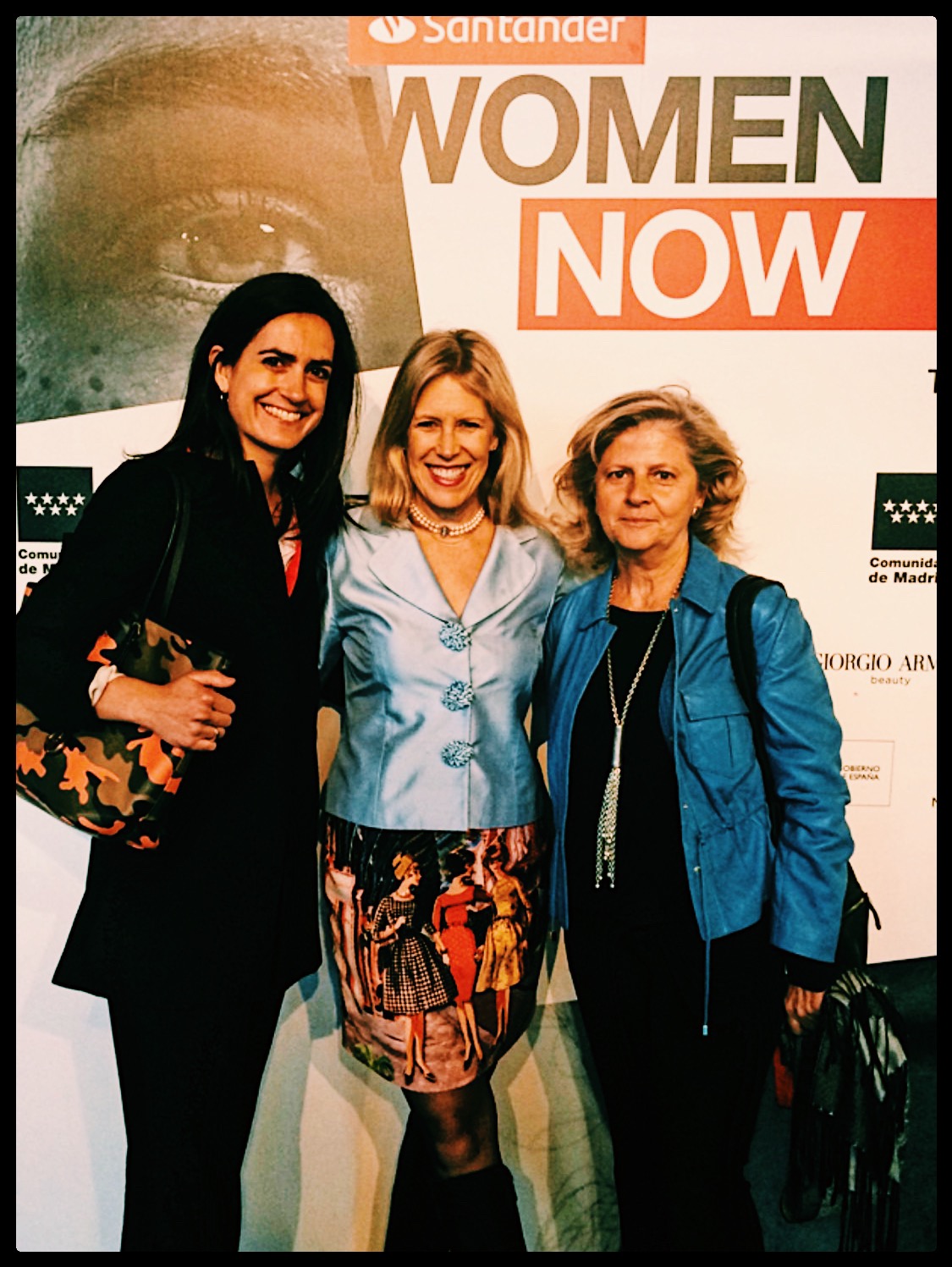
Processed with VSCO with c1 preset
How I Learned to Be Adventurous After 50
Click For Older Women Adventure Tips
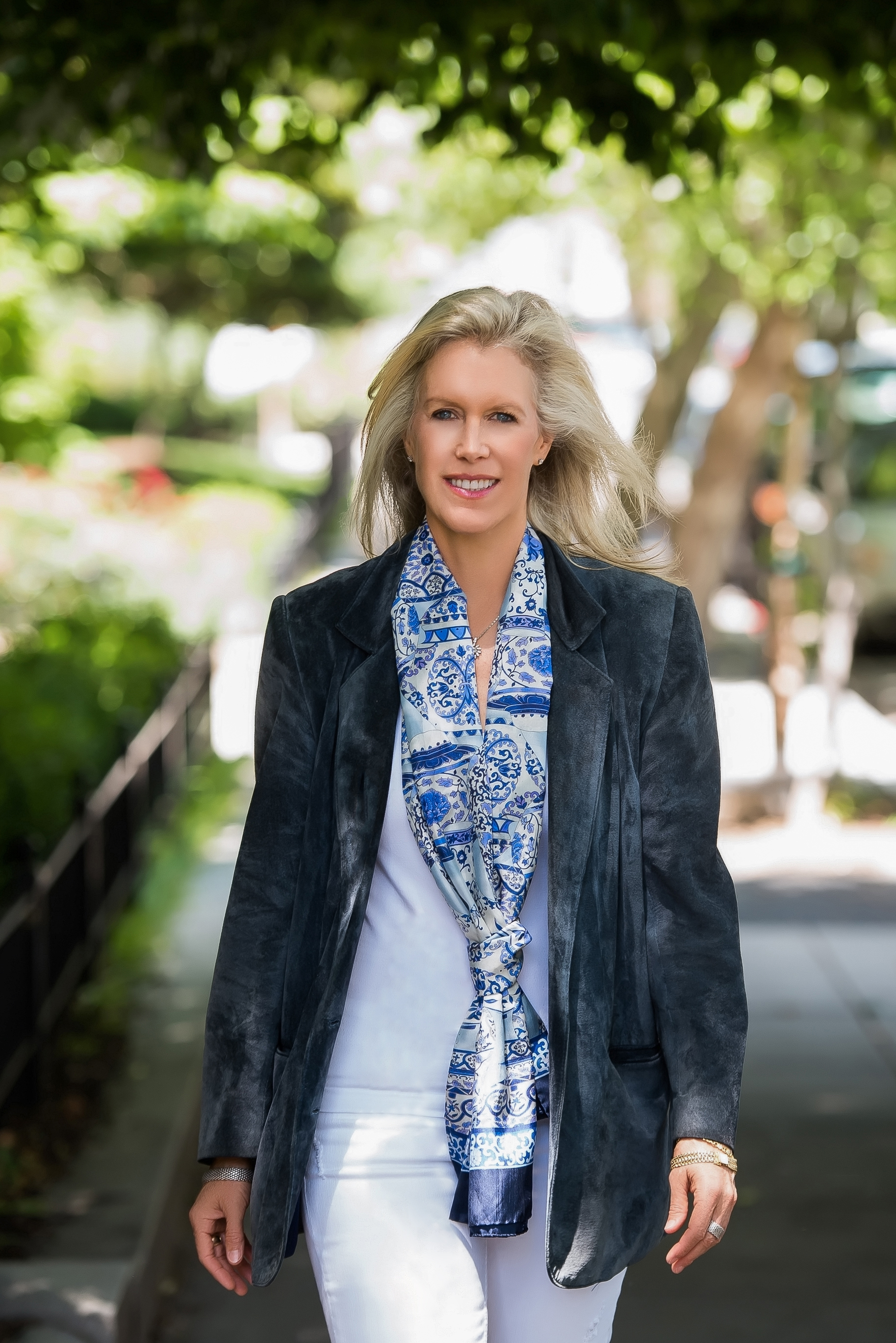
Joy Asico (www.asicophoto.com)

Forbes Magazine Profile of Leslie

Joy Asico (www.asicophoto.com)
Reporter Samantha Walravens Interviews Leslie on Critical Success Factors for Women
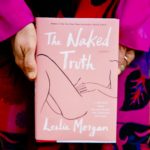
The Naked Truth Reader Q&A
This is your fourth book. Your other books have explored work/family balance, relationship violence, and infertility/surrogacy. What’s this one about?
The Naked Truth is a memoir that explores the astonishing (to me, at least) intersectionality of aging, sexuality and self-confidence of women after age 50. I’ve always been fascinated by the life choices women and girls make. My first job out of Harvard was writing for Seventeen Magazine in New York. All my books focus on women, and I’ve spent most of the past 15 years traveling around the world speaking at conferences about women. What I learned is that very few women approach aging and sexuality with a positive attitude. I wanted to change that.
Why did you write The Naked Truth as a memoir instead of a general nonfiction work?
When I got divorced at 49, I realized not only had I lost my marriage, I’d lost myself along the way, too. The intensity of marriage and motherhood, along with juggling work and family demands, can result in women (and men) losing touch with ourselves. Our culture actually encourages women to lose themselves in motherhood and marriage, and our partners tend to be baffled about how to help us. This book is a road map for finding your confidence and sexuality again, at any age.
Give us a snapshot of sex and women over 50.
There are more women over 50 in this country today than at any other point in history, according to data from the United States Census Bureau.
The statistics on older American women’s sex lives are shocking:
1/3 of women in their 50s haven’t had sex in a year.
50% of women in their 60s haven’t.
Despite the fact that older women enjoy sex more and have more intense orgasms! This is ridiculous. The Naked Truth is my attempt to show older women (and men!) that aging and sex go together rather fabulously.
Is online dating part of the answer for older women?
It’s actually part of the problem. Online dating is especially tough on older women, even though more than1/3 of marriages today start via online dating. Men’s desirability peaks at 50; women’s peaks at 18. (Which is part of why I do not do much online dating.) It’s particularly important for older women to be more assertive when it comes to dating and relationships, and also in terms of safeguarding our financial security throughout our lives, so that we never feel we need to find a man for economic reasons.
So how do you meet men?
First, let me explain that I’m a heterosexual woman, so my views reflect that perspective, but feel free to change the genders here, because I think this advice holds true overall. Men (or potential partners) are everywhere. On the sidewalk, at coffee shops, in yoga, at the airport. You just have to start seeing them. And when you see someone you like, have the guts to introduce yourself, get their contact information, ask them out, and remain unfazed by rejection. Men start learning these skills at 15; most women are never taught how to do this. But if you want to fill your life with interesting people, you need to put yourself out there on a daily basis, which is what I did and still do.
Part of your story is that you dated younger men. How did this evolve?
Society’s rulebook says that a woman who gets divorced at 50 needs to get remarried as soon as possible. I thought this was a depressing and absurd reaction. Instead, I did what older men do: I bought a sports car, I started dressing younger, and I started dating much younger partners. And you know what? One of my naked truths was discovering that this formula worked for me – exactly as it has worked for older men for centuries. I also discovered that it’s only very confident, interesting, attractive younger men who have the courage to go out with an older woman. Ironically, younger men made me feel appreciated BECAUSE I was older and wiser and more experienced sexually than women their age. The bottom line is that older women need to widen our dating pool – in the exact same ways older men do. We need to date older AND younger, and seek partners outside the traditional ethnic/ educational/ economic constraints we used when we were looking for “mates” in our 20s and 30s. As a 50 year old divorcee, for the first time I approached men like a buffet – taking what I wanted – without worrying at all about how to please a man or be valuable to him or to follow society’s rules about women and relationships. And it worked.
You called your dating strategy “the five boyfriend plan.” Did you ever think the men you dated simultaneously were using you, or that you were using them?
Consensual heterosexual sex is not something men take from women – it’s something we give to each other and ourselves. The sex was all consensual and it was all pretty great sex; if anyone was actually using me, I have to say thank you, because it made me feel beautiful and sexual and treasured in a way marriage never did.
Society makes so many judgments about women’s sexuality. How did you confront those as an older woman?
If a 50ish man who’d ended a sexless marriage dated five women in a year as I did, we’d all be cheering for him, not judging him. Popular society gives women limited choices when it comes to sexuality: you are a “good girl,” a prude, a slut, or you are desperate. Especially older women. I was none of these, as you can tell from reading TNT. One of the first naked truths I learned: I like sex a lot, I always have, and having fabulous sex with amazing men was a surefire route to feeling better about myself and life. These “boyfriends” helped me see that I was still beautiful and sexually attractive, beliefs I had lost during a long marriage. This was a priceless gift that I kept long after those men had left my bed and my life. Despite my emphasis on men, The Naked Truth is not a book about finding your soulmate. It’s a book about figuring out how to feel comfortable and beautiful in your own skin, no matter your age or physical appearance.
Not to give away the book’s ending, but are you single now?
Yes, I am single! Everyone asks me that – which is revealing in itself, right? Because we still think that the only legitimate fairytale ending for a woman means getting married and living happily ever after. But one my naked truths is there is no such thing as prince charming and you must be your own fairy godmother. My happy ending is that I’m living my life and collecting new material for the sequel to TNT. What I learned through a year of “adventurous” dating is that this is an inside job. My most important message to women is that valuing yourself is not about physical perfection – one of the blessings of aging is that you are freed from that aspiration and can finally, truly see that beauty comes from within.
Do you have any advice for women (or men) who want to stay married, but be happier in their relationships?
My advice for women is to think of your life as a pie chart. 50% mom? 30% work? 20% husband? Usually, we women leave ZERO % for ourselves. Don’t give into the pressure to stay silent and put yourself last. Be frank with your husband or partner about your needs and your level of happiness in the relationship. Take good care of you (especially if no one else is!) Men – as much as I love them – are NOT going to take care of us, and it’s not smart or fair for women to assume men will do so.
Many of the naked truths I discovered pertain to women. But I learned a great deal about men, too. Most men are encouraged to use relationships to stoke their egos, and they are not taught how to nurture women. This is why men often make women so miserable in long-term relationships – women need a deeper level of compassion and care and connection (the three Cs) than most men have any clue how to give.
My advice to married men: appreciate your wife and tell her what you love about her; work on your own issues, and shoot for greater intimacy with your partner, because that what marriage is really about.
What are you working on now?
I’m writing a sequel to The Naked Truth. Men keep on giving me absolutely unbelievable material.

He held a gun to my head. I loved him.
Leslie Morgan Steiner is the author of the New York Times best-selling memoir “Crazy Love” and a TED Talk about the many reasons abuse victims stay. She was the general manager of The Washington Post Magazine from 2001 to 2006.
Just before I fell in love with a man who abused me, I spouted off to my New York City roommate that I’d never be stupid enough to stay with a man who hit me. Like most people who are naive about the complexities of relationship violence — victims and bystanders alike — my dismissal of the dangers of abusive love cost me dearly.
When I see footage of Ray Rice knocking his then-fiancee, Janay Palmer, unconscious in an Atlantic City elevator — and her subsequent defense of Rice after he was cut from the Baltimore Ravens and suspended indefinitely from the National Football League this past week — I recognize how hard it can be to leave a violent relationship.
Here are the times I wish I’d left my abusive husband, an Ivy League graduate and Wall Street trader I met in New York when I was 22 and a recent Harvard graduate:
Three months into our relationship, the night he choked me during sex and I wrote it off as weird but somehow erotic (for him; not for me).
The day we moved in together and he wouldn’t talk to me because a male friend from college called to congratulate me on the milestone.
The Saturday he said I looked better without any makeup and told me not to wear it anymore.
The night I was getting dressed to go out to dinner and he told me I was a slut because my skirt was too short.
The morning five days before our wedding when he first physically attacked me, because, he said with his hands around my neck, “you remind me of my mother.”
During our honeymoon, when he punched me so hard my head hit the window in our car.
The night he pulled the keys out of the car ignition while I was driving 55 mph on the highway.
The day he said I couldn’t spend Christmas with my family.
The first time he threatened to kill our dog.
The first time he pushed me down a flight of stairs.
The first time he threatened to pull the trigger of the loaded gun he held at my head.
Here are the reasons I didn’t leave my abusive husband:
No one in my life had ever made me feel so safe, loved, beautiful and validated as he did during the early months of our relationship.
I confused pity with love, feeling sorry for him because he had been beaten and starved by his stepfather as a child.
I thought I was the only woman who could help him face his demons.
In between the terrible times, he still made me laugh.
I loved him.
No one but Janay and Ray Rice knows whether their relationship has been violent beyond that elevator ride, but I do know that isolated incidents of relationship violence are rare. They’re typically part of a pattern — a pattern that’s the same no matter the education, ethnicity, income level, race or gender of the victim or abuser. In my experience, this is how it goes: Fairy-tale romance. Isolation from friends, family, neighbors and co-workers. Threat of violence. Actual violence. Convincing apology. Repeat.
One in four women and one in seven men have been victims of severe relationship violence.
The riskiest time in a woman’s life for relationship violence is between the ages of 18 and 34.
Up to half of women who visit emergency rooms have been abused at some point in their lives.
It takes the average domestic violence victim seven attempts, often over a period of years, before she — or he, because men can be victims, too — ends the abusive relationship for good.
Once the victim does leave, she is in the greatest danger, because most domestic violence homicides happen after the victim has ended the relationship.
Here is what helped me end my marriage after four years of brutal attacks:
I did not have children with him.
I had two friends who guessed my secret, who didn’t judge me for it or try to force me to leave before I was ready.
Two police officers matter-of-factly informed me that, if I stayed with my husband, they would find me dead on my living room floor one day.
A domestic violence advocate went to family court to tell the judge why I needed a protection order; I was afraid the judge would believe my husband instead of me.
My mother gave me $10,000 because she knew that money would solve at least a few of my problems. And she gave it to me without saying “I told you so.”
I hired a divorce lawyer who persuaded me to give my ex-husband a lump-sum payment of $3,000 as part of our divorce settlement, so that the man I once thought was my soulmate could feel he had truly beaten me for good. It was the best money I ever spent because I haven’t heard from him in 20 years.
When it came to a choice between him or me, I chose me.
One day, Janay Rice may have her own lists of the times she wishes she’d left; the reasons she stayed; and the friends, relatives and strangers who understood the complex psychology of relationship violence.
Every survivor makes these lists.
She may also wonder why people asked, so often and publicly, “Why does she stay with a man who beats her?” And why so few asked why Ray Rice would hit the woman who loves him.
I wish the world could give Janay Rice, and other victims of relationship violence, the dignity they deserve.
Instead of condemning her for loving a troubled man, let’s educate ourselves about the twisted psychology of abusive love, so that we can be there for her if she decides to leave. Firing Roger Goodell and blaming the NFL won’t do Janay Rice, or any other domestic violence victims, any good.
Rather, we should hold abusers — and no one else — responsible for the damage they inflict.

There is a line between dominance and abuse — and ‘Fifty Shades of Grey’ is blurring it
It’s a fairy tale to believe you can turn your abuser into someone who cares about consent.
After a year of incredibly romantic dates and the hottest sex ever, in my mid-20s, I awoke to find myself married to a man I loved who pushed me down the stairs of our house, held a loaded gun to my head, called me “retard” for kicks and strangled me while he climaxed.
I did not find being an abuse victim even remotely erotic. So it surprised me years later when a new boyfriend asked, while we were between the sheets, if the violence I suffered meant that I liked being dominated in bed, and presumably elsewhere.
With hype surrounding today’s release of the “Fifty Shades of Grey” movie, that question has moved out of my bedroom into our culture at large. If you are a woman who finds “Fifty Shades of Grey” erotic (as I did), perhaps you are interested in domination. But while sexual domination and abuse can sometimes look similar, they are very, very different. As a survivor of relationship violence, there is not one thing about real abuse that is sexy.
Nothing in my years of being manipulated, humiliated and psychologically broken by a man I once adored translated to sexual pleasure — or even an appetite for playing a submissive role. “The difference between playing a voluntary dominant or submissive role vs. being an abuse victim is simple,” explains Melissa Febos, a former dominatrix and author of the memoir “Whip Smart.” “It all boils down to consent.”
Erotic subservience requires mutual agreement and trust between partners. The “Fifty Shades” plot includes a contract between Christian Grey and Anastasia Steele, outlining the types of BDSM that are, and are not, acceptable to her. In abusive relationships, real trust is impossible; consent is never given, either implicitly or explicitly. Thus the pain is never voluntary, as it is in BDSM relationships. The idea that women find non-consensual abuse erotic is a myth reinforced by fantasy porn and by a widespread misunderstanding of relationship abuse.
There’s a hard line between fantasy and reality for most people. Pretending to appease a lover to heighten sexual pleasure is vastly different from silently submitting to your husband because he threatened to hurt your children if you refused him sex. Having a man’s fingers around my neck, squeezing so I could not scream for help or breathe, had a toxic impact on my libido — afterward I was never able to look at my husband’s hands as gentle or arousing. So when that beau asked whether I like to be dominated, my response was nothing more than laughter. How could anyone oversimplify the psychological complexity of relationship abuse? Why would anyone presume that victims of violence find violence erogenous?
Well, first off, many people wonder why women stay in abusive relationships; therefore, they might think we stay because we like it. Since we, as a society, don’t know what women actually do find erotic, this theory becomes somewhat plausible. Adding to the confusion is the disturbing truth that violent relationships are so common. On average, 24 people per minute are victims of rape, physical violence or stalking by an intimate partner in the United States — more than 12 million women and men a year. More than 60 percent of female homicide victims are killed by people they know.
The second, even more confusing truth that “Fifty Shades of Grey” highlights is the way some women harbor stubborn fantasies about their power to heal a damaged man. It’s not Christian Grey’s good looks, his garage full of Audis, or his personal helicopter that seduces Ana. It’s his raw emotional vulnerability that catches her attention initially. As their relationship deepens, his confessions of early physical and sexual abuse, along with an almost child-like willingness to open up his painful past to her and her alone, keep her hooked. The deeper, more dangerous fairy tale of “Fifty Shades of Grey” is that a strong, independent-minded woman such as Anastasia Steele can reach inside a troubled adult like Grey and heal the damaged boy inside.
Unfortunately, warped pity for a broken man can be potent and soul-crushing. It’s no coincidence that, after months of indecision, I decided to sleep with my future abuser the same night he confessed that his stepfather had starved and beaten him as a child. I remember a flood of passion intermingled with sympathy. I wanted to show that sweet boy what true love was all about and make him mine forever. His pain and his need to be healed turned me on emotionally – in ways that his need to control me never could sexually.
This emotional fantasy – not the sexual one – explains the 100 million copies the Fifty Shades franchise has sold and the buzz over the movie. For some victims, the intoxication of healing a damaged partner is the root of how love blindfolds us while delivering us into danger. We cling fiercely to the seductive idea that we are powerful, smart women who can fix hurt men; perhaps nobly, perhaps idiotically, we refuse to abandon these men when so many others already wisely have.
Neither the “Fifty Shades” books nor the movie ever get to the most vexing relationship conundrum: How do you find yourself again after losing your identity in a romantic relationship? And how do you avoid losing yourself in the first place? For survivors of psychological and physical exploitation, life after abuse is all about learning to trust yourself again. It took me years to let myself off the hook for marrying a man who, before we even got engaged, established limits for my skirt lengths and makeup application. To trust yourself that you’ll never get into an abusive relationship again, you need complete self-acceptance to admit you ignored the warning signs of abuse and voluntarily participated in the dance of repeat betrayal.
Consistent with its unusual mix of erotic and idiotic, the “Fifty Shades of Grey” trilogy ends with Ana and Christian’s happily-every-after marriage and vanilla sex – unlike real life, where most abusive relationships end with protective orders, blocked cellphone numbers, drawn-out court battles over children, or in the worst cases, death. The one thing the “Fifty Shades” plot has most in common with real-life abuse is its ability to present a psychological con as true love. Some viewers, like some abuse victims, have trouble discerning between delusional passion and reality. In order to end relationship violence, all of us – victims, perpetrators, parents, bystanders, lawmakers and moviemakers – have an obligation to destroy the myth that physical or psychological abuse ever plays a legitimate role in romantic or sexual realities.
More from PostEverything:

‘Social Surrogacy’ an Option for Moms-to-Be Who Shun Pregnancy
For most women, carrying their own baby is the ultimate joy, seen time and time again in movies, on TV and in magazines.
More and more women, however, are turning to surrogates to carry their babies, not because they cannot conceive, but because they do not want to.
It’s a trend many are calling “social surrogacy” and one that was recently highlighted in an article in the May issue of Elle magazine.
“This is a wonderful opportunity for women to have more choices,” said Dr. Saira Jhutty, CEO of Conceptual Options LLC, a California-based surrogacy agency.
Jhutty’s agency matches surrogates with women who have nonmedical reasons for not wanting to carry their own babies. The women who come to her agency have a variety of reasons for wanting a surrogate, from not wanting a pregnancy to interfere with their careers to being afraid of what pregnancy will do to their bodies, Jhutty said.
“We have people who are afraid of being pregnant,” Jhutty said. “Some people work in an industry where image is very important so they don’t want to have to go through the changes that happen to a woman’s body when they get pregnant.”
But the choice is still a touchy subject, despite the rising interest in “social surrogacy.”
“Women are really guarded about issues involving their bodies and surrogacy because they are afraid of being judged,” said Leslie Steiner, author of “The Baby Chase: How Surrogacy Is Transforming the American Family.”
The cost is another issue that might give women pause. With surrogacy running $100,000 or more per child, it’s not for everyone.
“You have to ask yourself why you are doing this,” said Dr. Vicken Sahakian, medical director of the Pacific Fertility Center in Los Angeles. “Is there real benefit for bypassing the beautiful experience of carrying a child?”
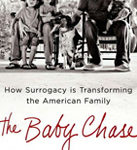
Motherlode Must-Read: ‘The Baby Chase: How Surrogacy Is Transforming the American Family’
“The Baby Chase: How Surrogacy Is Transforming the American Family,” by Leslie Morgan Steiner, was among the best books on family from 2013. I’ve been meaning to share it with you for some time, and Amy Klein’s post about donor eggs (“Would a Pregnancy Through a Donor Egg Feel Like ‘Mine’?”) and the resulting discussion of the medicine and ethics of egg donation, and in particular overseas egg donation, provided a perfect opportunity. If you’re at all curious about egg donation and surrogacy (in fact, if you’re just a curious reader at all), “The Baby Chase” makes a fascinating read.
The author takes a Tracy Kidder approach, using a strong voice and a personal narrative to frame the larger story of the history of surrogacy (which incorporates the history of donor eggs) and its place in fertility medicine today. It’s not her story she tells, but that of Rhonda and Gerry Wile, and of the Indian doctors and surrogate who ultimately (after an agonizing journey through every failure imaginable) help them to create their family of three children.
As a fan of memoirs, I appreciate the weaving of fact into a narrative, but “The Baby Chase” works better without the autobiographical burden. That the writer isn’t her own subject here gives her enough distance to offer the reader a picture of surrogacy as a whole, rather than as a solution. This is a book about parenthood, fertility and biology, but not necessarily in that order.
Every question is covered: the mechanics of surrogacy, the choice of a donor egg, the process and medical issues surrounding egg donation, the selection of a surrogate — and, of course, the ethics of it all. By telling the stories of both the surrogates who ultimately carry the children and the doctors who’ve created the clinic where the Wiles ultimately find success, as well as the story of the Wiles themselves, Ms. Steiner gives the reader a chance to hear the positive assertions of the benefits of surrogacy to the surrogates — and to draw her own conclusions based on the lived experiences of the women, which aren’t entirely positive or entirely negative. “The Baby Chase” delivers on the promise of the best journalistic nonfiction. It’s a captivating glimpse into a world and a journey most of us will never experience.

Who Becomes a Surrogate?
There are often “have” and “have not” differentials at play in the surrogate-intended parent relationship. The surrogates already have the ability to create babies; the intended parents have money. They are usually better educated, and far more economically secure. Sometimes these dynamics can create subtle tensions.
On a blue-sky afternoon in early November, a few days after Halloween, yellow leaves and a few Reese’s candy wrappers littered the cobblestone sidewalks ringing the Maryland State House. The circa-1772 redbrick, white column Annapolis landmark is the oldest American edifice still in legislative use. Our infertile founding father, George Washington, resigned his military commission here in 1783. Three years later, patriots rallied in the State House to call the thirteen American colonies to assemble for the Constitutional Convention. Another 225 years later, red, white, and blue American flags, as well as Maryland’s black, gold and red ones, fluttered at every window.
On the third floor of a small, anonymous office building directly across the street, Sherrie Smith sits behind her desk. She works only a few blocks from the Annapolis wharf, with its rustic “shoppes,” historic landmark buildings, pretty white sailboats and blue-glass water. Close-shaven cadets in black uniforms walk to town from the nearby United States Naval Academy.
“Having a baby for someone else is as far from easy money as you can get.“
Sherrie is always too busy to see much of the historic scenery outside her office. She’s buried in her email queue, conducting interviews via Skype and answering the phone. Her job is educating, listening to, and holding the hands of anxious, usually very wealthy, prospective parents from around the globe. She is the program administrator for the Center for Surrogate Parenting, one of the oldest, most respected surrogacy agencies in the world.
“The biggest misconception about American surrogates?” she clarifies in the beige-on-beige CSP conference room where she spends much of her days. “That they do it for the money. Having a baby for someone else is as far from easy money as you can get.”
Sherrie Smith has run the East Coast office of the Center for Surrogate Parenting since 1998. She’s now in her 60s. Although she chose not to have kids of her own, she and CSP have helped nearly 1,700 surrogate babies come into this world. CSP’s most famous babies include two sets of twins for Good Morning Americahost Joan Lunden, and Zachary Jackson Levon Furnish-John, the baby boy born on Christmas Day 2010 for pop rocker Elton John and his husband David Furnish.
Sherrie’s company was founded in Los Angeles, California in 1980. Sherrie’s boss—a Los Angeles lawyer by the name of William Wolf Handel—wrote a third party reproduction agreement, now called a “surrogacy contract,” as a random, one-off request for a client. Word quickly spread among infertile clients desperate to hire surrogates to have babies. The phone at Handel’s Los Angeles law office started ringing off the hook.
Bill Handel and his staff—all women except the boss—at first struggled to craft a workable set of guidelines in the brave new world of contractual baby making. They knew they’d stumbled upon a promising business opportunity—but a risky one. What if the surrogate changed her mind? Many desperate prospective parents asked. A reasonable question, without a clear-cut answer; no legal precedents had been established. So Bill Handel’s female-centric firm came up with an innovative business philosophy: the surrogate herself would have equal standing among the team of doctors, wealthy clients, and lawyers. With a democratic approach, Handel figured that they had a good chance of solving any problems that arose.
“It was impossible to write a contract—or create a company—that was unfair to women when all my employees and partners were women,” Handel explains today. Other women in Handel’s life added their two cents. In addition to his estrogen-rich office, the female clients who hire him, and the surrogates his company hires, insert one wife and two daughters. Women surround Bill Handel 24 hours a day.
“I live in a world where the toilet seat is never left up,” Handel clarifies, laughing.
Lucky for him, the approach proved wildly successful. Almost by accident, the Jewish, Brazilian-born Bill Handel became a pioneer in California surrogacy law. Over the years, his advocacy—plus a plethora of wealthy, high-profile celebrities who publicly embraced surrogacy—helped make California arguably the most surrogacy-friendly environment in the U.S. It also made CSP one of the finest, and most expensive, providers of surrogates in the world.
The first surrogate Sherrie Smith encountered had been hired by someone she loved so much, Sherrie would have supported her adoption of a Pet Rock: her sister Fay Johnson. After years of negative pregnancy tests and myriad infertility diagnoses, Fay Johnson became one of the earliest American women to go public about hiring a paid surrogate. Sherrie’s niece and nephew were both born via surrogate in California, in 1990 and then 1994.
During the years since, Sherrie has learned a great deal about the American surrogates who carry babies for infertile clients from around the world.
The clients are usually older, richer, better educated, often with graduate degrees, and more likely to come from large urban cities like New York, Los Angeles, Paris, and Tokyo. CSP’s clients are far better traveled than the surrogate mothers they hire. Intended parents (IPs) come from Argentina, Australia, Belgium, Brazil, Bermuda, Canada, China, Columbia, Cyprus … Denmark, Egypt, England, France, Germany, Hong Kong, India, Ireland, Israel, Italy, Indonesia … Japan, Kazakhstan, Korea, Lebanon, Luxembourg, Malaysia, Mexico, Netherlands, Norway, Papua New Guinea … New Zealand, Peru, the Philippines, Russia, Saudi Arabia, Scotland, Singapore, Slovenia, Spain, Sweden, Switzerland, Taiwan, Turkey and Venezuela.
The majority of intended parents are heterosexual couples. Some are infertile due to biological abnormalities. Others face fertility challenges wrought by hysterectomies, car accidents, paralysis, or other medical problems. More and more are gay male couples (lesbian couples rarely hire surrogates, given the inexpensive, thoroughly-screened sperm on the market and the statistical improbability of two female partners both being infertile). Increasingly, there are more single women and single men who are consciously and openly choosing to become solo parents. CSP originally worked only with couples, but in 2009 the company changed its guidelines to welcome single parents.
Surrogates already have what the IPs desperately want—the ability to create babies. What the IPs have is money.
The surrogates are obviously all female, and they’re noticeably younger—the average age is about 28. The typical profile runs like this: married, Christian, middle class, with two to three biological children, working a part-time job, living in a small town or suburb rather than a big city, with a degree of college education but usually without a college degree. Women who shop at Wal-Mart and Costco, not Whole Foods and Neiman-Marcus.
In the United States, statistics show that surrogates fall into the average household income category of under $60,000. About 15 to 20 percent are military wives. Some are single women. Those who are married have husbands who support paid surrogacy; surrogacy is obviously not something you can hide, or withstand with a spouse who is not on board emotionally. They have health insurance. They get paid well—the surrogacy fee paid directly to surrogate mothers who work for CSP runs from $20,000 to $30,000 per pregnancy, tax-free. Experienced surrogates often command higher fees; as in any position, experience counts. Of the women who serve as surrogates for CSP, roughly 35 percent repeat the experience; in the U.S. there is no limit to the number of times a surrogate can carry for-profit babies.
CSP is not alone in its strict criterion for surrogates. Ethical surrogacy agencies and lawyers don’t accept two specific categories of potential surrogates. First, they reject women below the poverty level who may be at greater risk for health concerns and coercion, and who probably do not have medical insurance. Second, they reject women who don’t have children. Women who are already mothers have proven they are fertile, and have a more comprehensive grasp of what it will mean to surrender a baby to its legal parents.
Although the money makes a difference, no surrogate signs up just for the money.
“It would be easier to get a job at McDonald’s,” Sherrie insists. “The money doesn’t begin to compensate them for what they do. A surrogate pregnancy means working 24 hours a day, 7 days a week, without a break, for nine months. Pregnancy is risky; pregnancy taxes your body tremendously. Our surrogates come to us because they love children, they want to help people who cannot have them, and they like the feeling of creating a family for other people.”
Yet undeniably, you’ve got “have” and “have not” differentials at play in the surrogate-intended parent relationship. The surrogates already have what the IPs desperately want—the ability to create babies. What the IPs have is money; they are usually better educated, and far more economically secure. They must be, in order to afford the surrogate’s fee, the agency fee, legal fees, and surrogacy’s medical expenses.
The IPs are consumed by desperation. As a result, their surrogate becomes, at least for nine months, the superwoman in their lives, the embodiment of their most fervent hopes and dreams. Working at McDonald’s or temping as a law firm receptionist can’t compare to being a wealthy, educated couple’s savior. Sometimes these economic and fertility dynamics can create subtle tensions; many times the enthusiasm of the surrogate and the gratitude of the intended parents smooth over any jagged feelings.
Surrogates do not pay taxes on the payments from clients, which technically are for pain and suffering incurred, not for carrying a baby.
Some quirks about surrogates. There are very few Jewish surrogates—and almost zero Jewish egg donors. Black surrogates carry babies for white families and vice versa. Surrogates do not pay taxes on the payments from clients, which technically are for pain and suffering incurred, not for carrying a baby. Daughters of surrogates frequently decide to be surrogates themselves; surrogacy can become a family tradition. Gay men are the favorite clients of many surrogate moms; one emotional complication is removed from the tricky relationship, because the gay intended parents don’t suffer the understandable jealousy/inferiority issues that can plague infertile intended mothers.
CSP selects only twenty of the 400 women who apply each month to be surrogates. The most common reasons for rejection? The surrogate lives in a state where commercial surrogacy is not legal. She has health issues such as high blood pressure or obesity. Her motivation is too heavily focused on money. She lives too far away from a level two NICU. She has not yet had a child.
What takes up most of Sherrie’s time is interviewing and managing the clients who retain CSP to oversee the complex surrogacy process. Step one is completion of an online form, available from CSP’s website, followed by a phone call with Sherrie. Step two is a half-day interview, conducted in person in Sherrie’s conference room or via Skype (particularly useful for international clients, who account for close to 50 percent of CSP’s parents). The interview includes a 45-minute preliminary psychological consultation with one of the independent counselors who work with CSP. Then clients must meet with an attorney familiar with state-by-state surrogacy laws and contracts, as well as international citizenship regulations if the client is from another country.
The first phase in surrogacy has nothing to do with babies, and everything to do with meetings.
During these lengthy consultations, everything about the process—the risks, unknowns, legal paradoxes, and costs—are laid out. Sherrie is a skilled communicator; the most important part of her job is talking and listening. She goes through the minutiae of health insurance clauses that exclude coverage for surrogate pregnancies. She diplomatically broaches whether a surrogate or a client would be amenable to reducing a multiple pregnancy, or terminating a pregnancy if the fetus has birth defects, both important issues to clear up long before they become realities, especially because forcing a surrogate to have an abortion is legally, and ethically, problematic.
Sherrie Smith wants to see glassy eyes on her prospective clients’ faces.
“The only surprise we want clients to have,” Sherrie makes clear. ”Is whether they’re having a boy or a girl.”

Infertile Americans Go to India for Gestational Surrogates
Rhonda and Gerry Wile of Mesa, Ariz., struggled with infertility for years. At first, Rhonda failed to get pregnant because her husband had not told her about a vasectomy he’d had in his first marriage. The news, received by an email in 2004 when he was serving in the Coast Guard in Kuwait, nearly derailed their four-year marriage.
Gerry had his vasectomy successfully reversed, but after suffering a miscarriage, Rhonda was diagnosed with uterus didelphys, a not too uncommon condition with a septum or dividing wall between two vaginas that leads to a double uterus. They said she likely could not sustain a pregnancy full-term.
So the couple turned to gestational surrogacy, a growing trend among American women for whom in vitro fertilization is not an option. They didn’t stay in the United States, but went abroad to India, where surrogacy is now one of the fastest-growing segments of the medical tourism business.
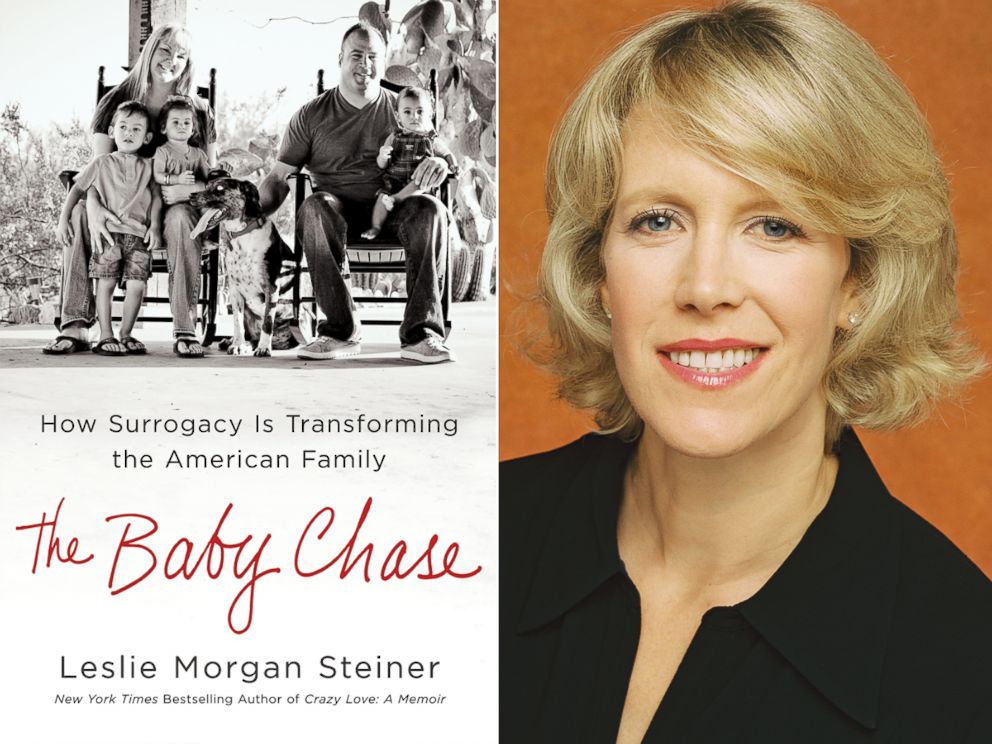
Having two vaginas is not so rare.
“When doctors told us surrogacy was one of the options for us and then a young lady at work told me the price, I felt we had hit a roadblock again,” Rhonda, a 43-year-old nurse, told ABCNews.com.
But today, the Wiles have three children, a 4-year-old boy Blaze, and 2-year-old girl/boy twins, Dylan and Jett. Gerry, a 47-year-old firefighter, made one sperm donation in April 2008, and their children were conceived though a Muslim Indian egg donor the couple had never met. All three are full biological siblings.
“We knew it was huge to go to India,” said Rhonda. “We could show up and it could be a phony website and we could be taken for a ride. But as we got more familiar and deeper into the process, our fears faded away. We met the doctors and spent time with them and there was an immediate connection and sense of trust.”
Their unusual but touching journey is the subject of Leslie Morgan Steiner’s new book, “The Baby Chase: How Surrogacy Is Transforming the American Family.”
“I wanted to look at what happens when we can’t have children and the lengths we go to,” said Steiner, author of “The Mommy Wars” and “Crazy Love.” “How far would I go to have a baby? As I got into it and learned more about it, I realized there were complex medical, ethical and religious issues. It was so multi-faceted.”
“Infertility is a cruel and crippling disease, and surrogacy is one of the solutions — for some, it is the only solution. — Leslie Morgan Steiner”
Steiner followed the Wiles to India to investigate the private clinic where their children were conceived and to meet the gestational carrier of their twins.
The cost for all three children was about $50,000 compared to an estimated $100,000 a child in the United States. And the Indian women who carried the pregnancies, who typically earn about $60 a month, each received the equivalent of $6,000.
Indiana couple braces for second set of triplets.
What India has to offer, according to Steiner, is “world-class private hospitals, an abundance of English-speaking doctors, and a plethora of poor, but healthy women of childbearing ages.”
No data yet exists on how many surrogate births take place in India, but Steiner contends India has become the largest provider to infertile couples in the Western world outside the United States.
These are reputable clinics, according to Steiner. “They only want mentally and physically healthy surrogates who have already had children and have proven their fertility and can gestate a baby and women who understand the complexity of what they are doing.”
“When you have a baby 8,000 miles away, you need a lot of reassurances that the surrogate is going to get good medical care,” she said. “They sign a contract not to have sex, to take vitamins and eat healthily. The clinic goes the extra mile to cook and take care of them and they see the doctor in a regular basis.”
Legal since 2002, gestational surrogacy is thriving in more than 1,000 clinics in India. According to a World Bank report, the commercial surrogacy industry in that country will reach $2.5 billion by 2020.
A bill is before the Indian Parliament that will for the first time regulate this nascent industry, but critics say that its provisions lack adequate protections for the women who act as surrogates.
But Steiner argues it is “empowering” for these women. “India is a very sexist and paternalistic country. The vast majority of women never work their entire lives. … But a woman can buy a house or pay for the lifetime education of her children. Going in as a Westerner, you think these women are being taken advantage or exploited, but it’s exactly the opposite. They become heroes in their families and among their neighbors.”
Dr. Sudhir Ajja, co-founder of Surrogacy India, the Mumbai clinic where the Wiles’ children were conceived and delivered, said about 95 percent of his clients are international — 30 to 40 percent Americans, followed by Australians and Swedes. His clinic, founded in 2007, delivers about 302 babies a year, averaging 15 to 20 new pregnancies a month.
He and his co-founder had seen clinics doing surrogacy on an out-patient basis and said they wanted a more “humane” approach with more medical oversight.
Surrogate mothers are put through a rigorous screening process for physical and psychological health, and the clinic rejects more than a third of them.
At first, surrogacy was considered shameful by Indian women.
“Things have changed,” Ajja told ABCNews.com. “We have thousands [of women offering to be surrogates]. We now get referrals from sisters, sisters-in-law and word of mouth.”
The surrogates receive free medical care, food and even housing close to the clinic, where they can be monitored by medical professionals in the third trimester. The fee paid by couples includes the surrogacy fees, IVF, medical testing, legal documents and passport assistance.
Author Steiner doesn’t suggest there are no potential problems with international surrogacy. “It’s not a perfect world,” she said. “India has a big problem with forced prostitution and there is a high incidence of female infanticide. So it is a bit ironic that surrogacy is flourishing.”
Rhonda learned about the Indian clinic on an “Oprah” show and then by searching the Internet. When they saw the cost, about $26,000, she said, “I thought it was do-able.”
The only references the couple had was a man from Spain, “who spoke very broken English,” said Rhonda. But when they arrived in India and saw the birthing hospital and the accommodations for the surrogates, “we felt good about the process,” said Rhonda. “It was very professional.”
Through both pregnancies, the Wiles kept in touch with the surrogates via a language interpreter on Skype. When Blaze was about 18 weeks in utero, the couple decided to go to India and meet his surrogate.
“We wanted to see the ultrasound and we set up a meeting and made the trip to go halfway around the world,” said Rhonda. “It was fabulous.”
What she learned was that the woman was the mother of two boys, married to a factory worker. “She did basically what 90 percent of the surrogates do – she wanted to buy a house as her goal.”
As for the twins, their surrogate “was poverty-stricken,” said Rhonda. “She needed money to survive and was having a hard time making ends meet. Her husband was out of work quite often and she needed to put food on the table.”
Now, on her blog, Our Journey to Surrogacy In India, Rhonda recommends her experience to other infertile American couples.
“We became a reference for others,” she said. “It’s amazing. People have sent me messages and still thank me for their children: ‘Without you, we would not have a child.'”
As for Steiner’s book, Rhonda said, “I loved it. I read through the entire book and took time to read it quietly and in detail to bring it all in. I literally relived my whole journey through her eyes. I cried. I laughed. I lived it through her.”

‘The Baby Chase’ by Leslie Morgan Steiner
“Surrogacy is as old as the Bible,” one American surrogate mother tells her critical mother-in-law. “We’re just helping other people have babies. It’s a beautiful thing.”
Leslie Morgan Steiner seems mostly to agree. In her new book, “The Baby Chase,” Steiner tackles some of the legal, ethical, religious, and social thickets that arise when people use advanced reproductive technology, including the uterus of a stranger, to make a baby for themselves.
But while offering some acknowledgment to the controversies surrounding surrogacy, the author comes down firmly on the side of prospective parents who’ve found themselves out of medical options and stymied by adoption red tape. For them, “infertility can become an insurmountable, intensely personal, crushing” burden, one intensified by religious condemnation, social ignorance, and financial strain.

An Open Letter to Rihanna
Dear Rihanna,
As I write this, the tabloids and TV news channels are obsessing about your relationship with Chris Brown. They want to know why you two reconciled, how many attacks you may have hidden before the one that made headlines in February, and what you’ll do if he’s tried and goes to jail. Reporters go on and on about battered women and their maddening tendency to forgive the men who hurt them, not realizing their words blame the victim. I know how that must feel. They could be talking about me.
When I was in my early twenties, I fell in love with a “perfect on paper” guy (Ivy League degree, big Wall Street job) who beat me and degraded me in ways I never could have imagined. I did not leave him the first time. Or the second time. It wasn’t until four years after our wedding day that I finally staggered out of our marriage as unrecognizable to myself as you must have found your own bruised, swollen face to be. So I’m not going to tell you or anyone else to leave someone you love and expect that will solve all of your problems. I know from experience that leaving is easy. The tough part is figuring out how to pick up the pieces of yourself and make a new life.
I was 22 when I met my abusive lover. I’d just graduated from Harvard and had landed a great job at Seventeen magazine in New York. He was funny, self-deprecating and scrappy in a way I adored. One night he told me that he’d been abused as a child. I listened and I loved him, confident that I could be the one to help. A few of my friends tried to warn me off dating a man with a temper and a rocky past, but I didn’t listen. I thought I could handle it.
Then, on our island honeymoon, he attacked me twice while I was driving the rental car. I had gotten lost looking for a barn where we were supposed to ride horses; his reaction was to punch me so viciously that my head hit the side window. A few days later he threw the cold remains of a Big Mac at me while I drove on the highway. At first I excused each attack. He was stressed, I told myself. But eventually the abuse became routine. He pushed me down the stairs, poured coffee grounds on my head and once pulled the keys out of the ignition as I went careening down the highway at 55 miles per hour.
All the while, I kept his assaults a secret. It never occurred to me that someone outside our relationship would understand; I was sure they would blame me for provoking him or think I’d blurred the line between a heated argument and abuse. I did not know then that The Centers for Disease Control and Prevention reports that 2 million women are injured by their husbands or boyfriends each year. Three of those women die every day.
It wasn’t until my ex-husband almost killed me that I realized we weren’t just an ordinary couple with some problems. Six months earlier I’d given him an ultimatum that if he hit me again, I’d leave. To celebrate such a long happy stretch—and our anniversary—we planned a trip to Paris. The night before we left, he attacked me. It was as if he’d been saving up six months’ worth of anger; his beating was that brutal. My denial broke; for the first time I was scared, terrified actually. Neighbors heard and intervened. The police came. And I left my marriage.
I made a list of all of the people I had to tell. At the top was my mother. I was so scared to disappoint her, but her response was to give me a gift: a gold ring in the shape of a butterfly. I couldn’t think of what I had to celebrate, but I got her point immediately: cocoon, butterfly, new life. I knew I was being transformed into something more beautiful in her eyes. And each time I went to the police station or to court to file another restraining order, my mother’s present reminded me that while I may have felt like damaged goods, I wasn’t.
I left my marriage broke and broken—physically, emotionally, financially and socially. It took me years to pay off our debts, to enter a room with an easy, confident smile, to fall in love again and trust that the man I loved would not raise a finger to me, ever. But I did. My message to any woman who’s been betrayed is this: You have another life waiting for you. You may be isolated, but you’re not alone. I hope to welcome you into a very exclusive girls’ club. One filled with wise, wise women whose experience with abusive love rests deep in the past.
Looking at my life now—my quiet, kind husband, our three kids, a satisfying career, a beautiful home—you’d never guess that I spent my twenties hiding cuts, bruises and a broken heart. At 22, before the beatings started, I thought I was merely lucky—lucky to have my degree, my job, my cute apartment, my boyfriend. But I don’t place my faith in luck anymore. Some of us take our lessons in love straight up. Everything I have now I earned with hard work and hard lessons, plus a stubborn faith that I deserved, despite everything, to live happily ever after. We all do.
With love and support,
Leslie Morgan Steiner
Author of the new book Crazy Love, a memoir of her abusive relationship

Teens Closely Watching Chris Brown, Rihanna
The alleged domestic violence incident involving R&B stars Chris Brown and Rihanna has stirred serious discussions about abusive relationships among teens.
Leslie Morgan Steiner is author of Crazy Love, which details Steiner’s abusive first marriage. Steiner is joined by regular parenting contributors Dannette Tucker, who also survived an abusive relationship, and journalist Asra Nomani to explore ways to discuss abuse with youngsters who claim to be in love, and why many victims suffer in silence.
Nomani also explains the case of Aasiya Hassan, a New York woman who was recently beheaded. Hassan was allegedly murdered by her husband, Muslim media tycoon Muzzammil Hassan.

Excerpt: ‘Crazy Love’
NOTE: THIS EXCERPT CONTAINS LANGUAGE THAT MAY BE OFFENSIVE TO SOME AUDIENCES.
Chapter 1
If you and I met at one of our children’s birthday parties, in the hallway at work, or at a neighbor’s barbecue, you’d never guess my secret: that as a young woman I fell in love with and married a man who beat me regularly and nearly killed me.
I don’t look the part. I have an MBA and an undergraduate degree from Ivy League schools. I live in a red brick house on a tree-lined street in one of the prettiest neighborhoods in Washington, DC. I’ve got 20 years of marketing experience at Fortune 500 companies and a best-selling book about motherhood to my name. A smart, loyal husband with a sexy gap in his front teeth, a softie who puts out food for the stray cats in our alley. Three rambunctious, well-loved children. A dog and three cats of our own. Everyone in my family is blonde (the people, at least).
Ah, if only being well-educated and blonde and coming from a good family were enough to defang all life’s demons.
If I were brave enough the first time I met you, I’d try to share what torture it is to fall in love with a good man who cannot leave a violent past behind. I’d tell you why I stayed for years, and how I finally confronted someone whose love I valued almost more than my own life. Then maybe the next time you came across a woman in an abusive relationship, instead of asking why anyone stays with a man who beats her, you’d have the empathy and courage to help her on her way.
We all have secrets we don’t reveal the first time we cross paths with others. This is mine.
I met Conor on the New York City subway, heading downtown, 20 years ago. I was 22. I remember it like yesterday.
The window in Kathy’s office was the only daylight I could see from my presswood desk in the hallway. I snuck a look. My ugly orange swivel chair squeaked.
It was a chilly, gray Monday afternoon in mid-January. The midtown Manhattan skyscrapers were slick and dark with rain.
First thing that morning, Kathy — head of the Articles Department at Seventeen and the first boss I’d had in my life — held a meeting to dole out assignments for May. Then I interviewed a fidgety twelve-year-old Russian model who looked 29 with makeup on. After that I ran out in the rain for lunch with the wacky British astrologer who wrote Seventeen’s monthly horoscope column.
I’d graduated from college the spring before on a day when Harvard Yard looked like the opening scene from a big-budget movie. Sun-dappled spring grass. My mom happy-drunk in a striped Vittadini wrap dress. My dad so proud I thought his face would split open, beaming as only a poor Oklahoma boy with a daughter graduating from Harvard could.
The day so lovely I wanted to hold it forever in my hands.
Working at Seventeen was better than a Baskin Robbins sundae. We read magazines all morning and talked about sticky teenaged paradigms on the clock. In the afternoons we raided the Fashion Closet– a huge room where the Fashion editor kept designer samples that transformed gawky teenage ostriches into goddesses. I hated the few times I’d gotten sick and had to miss a day.
Outside Seventeen I roamed New York City like my new backyard. Dinners at the Yaffa Café and Bombay Kitchen. Hours dancing with my roommate at Danceteria or Limelight. Even the most mundane activities — folding clothes at the fluorescent-lit Laundromat across 8th Avenue, jogging through the Meat Packing district — became adventures.
But it was tricky getting the whole work thing down. Putting on pantyhose like a uniform, no runs my frantic morning mantra. Getting on the E train instead of the express to Harlem. Figuring out how to eat when my paycheck ran out six days before the next one was due.
Everything seemed so new.
I wrote and rewrote that afternoon at my desk in the hallway as the rain poured down outside Kathy’s window. Every girl in America read Seventeen’s at some age. Nearly four million girls devoured each issue; some favorites became like bibles for girls who had only a magazine to turn to for advice.
I should know.
Every day, often with little support or guidance, a teenage girl tackled staggering dilemmas. If your boyfriend offered drugs, did you do them? Did buying birth control make you a slut? Where did you get birth control at 16, anyway? What if your best friend drove drunk with you riding shotgun? Your stepfather came on to you? Your parents got divorced? Your mom got cancer?
My piece was slated for March, meaning I had to finish it by…Friday.
“Almost done?” Kathy barked as she whizzed by in her black patent leather boots with three-inch heels. I jumped off my chair.
The story itself asked a simple enough question: why do teenagers run away from home? But after pouring over government statistics and interviewing social workers, psychiatrists and the four runaways who would actually talk to me, I’d come to an awful understanding.
Of the estimated 1.5 million teenagers who hit the streets each year, the majority bolted because they thought any situation would be better than home.
Twenty-five percent came from families with alcohol or drug abuse.
Fifty percent had been sexually or physically abused by someone in their household.
What kind of home was that?
The realization that broke my heart: all runaways start out fighting for a better life. The survival instinct that gave them courage to leave bad homes made them try to turn the streets into a new home, the other runaways their families.
Within months, two-thirds were using drugs and supporting themselves through prostitution. Close to a third didn’t know where they’d sleep each night. One-half tried to commit suicide. Two-thirds ended up in jail or dead from illness, drug overdoses, or beatings by pimps, johns or other homeless people.
When I finally looked up from the computer I was the only one left at the office, feeling like I’d been ditched by the cool girls after school in eighth grade. My watch read six p.m. It seemed like midnight as I trudged to the subway in the rain.
Winnie took forever to unlock the three deadbolts on her apartment door.
We hugged; she was only 5’2″ so the top of her head butted against my chin. As always, her hair smelled like honeysuckle.
I dropped my purse in the foyer and started unlacing my L.L. Bean duck boots, indispensable during the snowy Cambridge winters and slushy springs. Ridiculous footwear now that I lived in the fashion capital of the planet.
“How was work?” she asked. Winnie (short for Winthrop – I’m not kidding) was wearing a white cotton shirt with a high ruffled collar, threaded with a pale cream sliver of silk, tucked into a long brown suede skirt.
“Great … I’m writing about teen runaways.”
I shook the wet boots off my stocking feet. I had a harder time shaking off the images of the 14-year-old girl I’d interviewed for my story. The one who slept on a subway grate and blew her hair dry in a corner of the Trailways bus terminal next to the pay phone she refused to pick up to call home.
“So how was your work, Win?”
She was a salesgirl at the Polo Mansion at 72nd and Madison selling outrageously priced Ralph Lauren clothes to celebrities. She had to wear all Ralph Lauren clothes. Blonde Wasp perfection every day.
“Oh God, it’s a long day when you’re on your feet trying to smile at all those rich assholes.”
Something on the stove started hissing like an angry cat.
“Fuck!” she yelled. Even in fourth grade, she swore like a 35-year-old divorcee. I followed her into the tiny kitchen.
She took the pot off the burner and turned back, smiling. Even Winnie’s teeth were cute. That was one of the first things I noticed the day she showed up at elementary school. Over the next three years she taught me the following life essentials: how to shave my legs with Spring Green Vitabath, sleep until noon, and look up sex words in the dictionary. I loved wearing her preppy clothes, smelling like Winnie’s laundry detergent even if just for a day.
The year I turned 13 I grew four inches, began smoking pot, drinking tequila and dating older guys. I totally outgrew Winnie’s entire closet. Her Lacoste shirts wouldn’t cover my belly button anymore.
When I drank, she was one of my favorite people to call late at night. “I love you Winnie,” I would slur into the phone. She was always pretty nice about those calls.
“Look!” She held out her left hand, fingers splayed, so I could get a full view of her sparkly new engagement ring.
“Congratulations, Win. I am so happy for you.”
I was even happier for Rex, her fiancé. He’d get to smell her hair on their pillow every night for the rest of his life.
“I always knew he was right, even at that Trinity frat party when I first met him,” Winnie said as she spooned fresh pesto into a blue enamel pasta bowl. She didn’t say what I knew mattered most: Rex loved her, but not with that “my-life-is-nothing-without-you” desperation that drove her crazy. A parade of high school boyfriends had gotten velcroed to her in exactly the same way I had as a kid. They always ended up needing her too much. I’d watched her peel them off one by one, like bubble gum stuck to her shoe.
I looked around their small apartment, filled with Winnie’s Ralph Lauren fabrics and Rex’s dark leather furniture. Winnie was supposed to live with me, our reunion following four years at different colleges, my chance to prove I’d become sober and responsible and likable again, right? Then at the beginning of last summer, while she waited for me to move to New York, she stayed in this apartment with Rex. Just for a few weeks, she’d said.
Audrey, the roommate I eventually found in Chelsea, was great. But here’s what I wanted to ask Winnie tonight: couldn’t she postpone marriage for a few years, so that we could be roommates, to give me a chance to catch up? If I weren’t right for her as a roommate, how on earth was I going to meet a man right for me? A man like Rex who might ask me to stay for a few weeks and then ask me to stay forever.
Instead I said, “Wow, the ring is beautiful.” It was.
We sat down to eat and she gave me the blow-by-blow on how Rex proposed on the beach during their New Year’s trip to St. Barts.
As we stood side by side in her miniscule kitchen afterwards washing the dishes in hot, soapy water that smelled like lemons, Winnie asked how my love life was.
“Kind of anti-climactic compared to yours,” I said. “All that matters to men here is how much money they make and where they live.”
“Trust me, every guy who walks into the Polo Mansion tells me within 30 seconds about his address and income bracket. Please.” She shook her head and laughed, crinkling the snub nose that was the envy of every girl in high school, including me. I reached into the soapy water and grabbed a bunch of silverware.
“I meet them all over the place, Win. At parties and clubs, of course. Just last week I met a guy on the bus. Someone asked me out while I was standing in line for the bathroom at Isabella’s. Another guy tried to pick me up while I was jogging around the Reservoir. They’re everywhere.”
She handed me a pot to dry.
“For the first time in my life, I have this rule – one of the things I learned when I stopped drinking…” My voice cracked. I bet my face looked like a tomato. I kept talking.
“… is that I will never date a man to satisfy some need of mine or someone who wants me to fill a desperate need of his.”
The words sounded like cheap cardboard. But Winnie nodded, her brown eyes big and reassuring.
“I don’t have sex with them, Win. We don’t even kiss. We talk. For hours. In restaurants I could never afford on my salary.”
She laughed.
“You know, it sounds so innocent, Les. And really fun. It’s just what you need right now, right?”
She flicked soap at my face and a few suds landed on my nose.
Yep, just what I needed. But not what I wanted.
After another congratulatory hug, I headed out into the cold rainy night, exchanging Winnie’s warm, bright apartment for the manicured Upper East Side streets. The heavy brownstone doors of the million-dollar co-op buildings, locked and festooned with polished brass knockers, seemed to declare that everyone in New York was safe at home.
Except for me.
(Crazy Love is a personal history. The events described in this book are real. Many names, except for my own, as well as several geographic and identifying details, have been changed for the usual reasons of privacy and security. A few important characters have been omitted and combined; the character of Winnie represents an amalgam of important friends.)
CRAZY LOVE. Copyright 2008 by Leslie Morgan Steiner. All rights reserved. Printed in the United States of America. No part of this book may be used or reproduced in any manner whatsoever without written permission except in the case of brief quotations embodied in critical articles or reviews. For information, address St. Martin’s Press, 175 Fifth Avenue, New York, N.Y. 10010.

A Memoir Of Domestic Violence And ‘Crazy Love’
Former Washington Post executive Leslie Morgan Steiner is a best-selling author with degrees from two Ivy League schools, three adorable children and a loving and successful husband. If you met her on the street you might never guess her secret: that she was once married to a man who beat her with abandon on a regular basis — an experience she recounts in the memoir Crazy Love.
Steiner says when she first met her ex-husband, whom she calls “Conor,” on the New York City subway, she had no inkling that he was capable of such abuse.
“He was really clean-cut, dressed in a business suit,” she tells Michele Norris.
But early in the relationship, there were certain warning signals that indicated Conor’s violent nature. For instance, he referred to her as “retard,” which, Stainer says, was “a term of endearment, as sad as that sounds.”
Then, five days before their wedding, Steiner was working at her home office and couldn’t get the computer to work. Conor burst into the office and put his hands around her neck and shoved her against the wall repeatedly.
“I should have left then, I suppose, but I think that the power of love just overwhelmed my intelligence and logic and rationality,” says Steiner.
Eventually, after years of emotional and physical abuse, Steiner did leave Conor. She moved on to marry a loving man, with whom she has three children. But she still keeps a small box of mementos from her first marriage in her basement — including the last note that Conor ever wrote her, which reads “Goodbye Retard.”
“In some ways, keeping those mementos is a reminder of how far I’ve come,” says Steiner.

Commentary: Rihanna may not be alone
Editor’s note: Leslie Morgan Steiner is the author of “Crazy Love,” a new memoir about domestic violence, and the anthology “Mommy Wars,” which explores the polarization between stay-at-home and career moms.
CNN) — For two days, news reports called her “the 20-year old victim” allegedly attacked by R&B singer and dancer Chris Brown in his car early February 8 in Los Angeles, California.
We all now have good reason to believe that the alleged victim was pop singer Rihanna, Brown’s girlfriend.
The story has dominated the general media with good reason. Both singers are young, apple-cheek gorgeous, immensely talented and squeaky clean — the last couple you’d imagine as domestic violence headliners.
Perhaps the only good that will come from the Rihanna/Brown publicity is destruction of our culture’s misconception that abusers and their victims can only be universally poor, uneducated and powerless.
Brown, whose first song debuted at No. 1 and whose first album topped the Billboard Hot 100, appeared on a Disney sitcom and in Sesame Street, Got Milk? and Wrigley’s Doublemint Gum commercials. Barbados-born Rihanna has been big-brothered by music industry legends like Jay-Z and Kanye West and is signed to the Def Jam Recordings label.
She has been astonishingly successful in the short time she has been on the music scene, attaining five Billboard Hot 100 No. 1’s with “SOS,” “Umbrella,” “Take a Bow,” “Disturbia” and T.I.’s “Live Your Life.”
Like Rihanna, I had a bright future in my early 20s. I met my abusive lover at 22. I’d just graduated from Harvard and had a job at Seventeen Magazine in New York.
My husband worked on Wall Street and was an Ivy League graduate as well. In our world, we were the last couple you’d imagine enmeshed in domestic violence.
Many of my ex-husband’s attacks also took place in our car. For reasons I never understood, the enclosed, soundproof space brought out his worst violence. He punched me so fiercely that my face had bruises from his fist on one side and from hitting the window on the other.
As trapped in the car as I was in our marriage, it was there that I endured tirades about how controlling I was with money, how flirtatious and naïve I was with other men, how defiant and disrespectful I was of my husband’s authority.
So, I suppose I have more understanding than most about the shame, fury, confusion and disappointment Rihanna may be experiencing. What’s hardest for outsiders to fathom is how lethal a cocktail love, hope and sympathy can be. I first fell for my husband the night he confided how he, like Chris Brown, had been traumatized as a young boy by domestic violence in his home.
“He used to hit my mom … He made me terrified all the time, terrified like I had to pee on myself,” Brown said during a 2007 interview with Giant magazine.
Brown hasn’t explained what happened in the recent incident, but this week he released a statement saying that he’s sorry and saddened by it.
Our culture encourages women to nurture men, making it predictable that many experience a seductive empathy for abusive men, as well as the misguided hope that love can obliterate an ugly past.
In my case, it took four years, myriad terrifying attacks, and the intervention of the police and family court before I understood how little I could help my ex get over his abusive childhood.
I certainly felt alone during my abusive relationship, but unfortunately I was in good company. The U.S. Department of Justice estimates that between 1 million and 3 million women in America are physically abused by their husband or boyfriend each year.
Every day, on average, three women are murdered by their husbands or boyfriends. At some point in our lives, 25 percent of American women will report being physically abused or raped by intimate partners, according to the National Violence Against Women Survey conducted by the Centers for Disease Control and Prevention.
However, these statistics, grim as they are, fail to highlight the root of the abuse cycle. A national survey showed that 50 percent of men who frequently assault their wives also frequently abuse their children.
Witnessing abuse, as Chris Brown and my ex-husband did as young boys, is a form of abuse itself. Tragically, many victims of childhood abuse grow up to be abusers themselves. I always sensed that my husband didn’t want to be hurting me — he knew exactly how excruciating love and fear felt mixed together — but his childhood rage overpowered his adult sensibilities.
A few months after I left my marriage, I happened across another couple in another car, late at night on an empty street. I slowed down as a well-dressed woman about 25 years old was walking away from a white Honda, brushing off a tall, handsome young man wearing a sports coat and jeans.
Suddenly she turned and tried to run. He grabbed her with his long arms and shoved her up against a dirty storefront. Even from my car I could see the fear on her pretty face.
Without thinking, I jerked my car over and got out. By this time the man had let the woman go and she’d slid behind the wheel of the car. He stepped back as I approached, his anger displaced by uncertainty and shame at being interrupted. I didn’t look at him. I leaned into the car as she sat clutching the wheel, crying and staring straight ahead.
“I just left a husband who beat me for three years,” I said. “You do not have to put up with this. You do not deserve to be treated like this.”
“I know,” she whispered as fresh tears poured down her face. She sniffed loudly and shook her head. She wouldn’t look at me. Her eyes were rimmed red, but I could see resolve in them.
“You’re right,” she said. “It’s just taking me longer than I thought.”
As I left, I gave the man a long stare. The spell had been broken and his face was open, sorrowful, filled with hope and fear — a look I had seen dozens of times on my husband’s face. How long would that look last before he got angry again? I could feel the woman’s determination as I got back into my car. I knew she would be all right, one day. The man, I was less certain about.
Family violence is a criminal act; perpetrators, while often former victims themselves, need to accept culpability. Until we can prevent children from witnessing and becoming victims of abuse, the cycle will repeat itself: there will be many more Chris Browns and “alleged victims” in our headlines and in our homes.
The opinions expressed in this commentary are solely those of Leslie Morgan Steiner.

Crazy Love
Deborah A. Kelly writes: Crazy Love, a memoir by Leslie Morgan Steiner, is a stark reminder that domestic violence is not the exclusive purview of the poor or of immigrant cultures. Steiner reminds us that violence within romantic relationships can happen to anyone and anywhere, even trust-fund Harvard grads with promising careers. The physical and emotionally abusive love that Steiner shares with her readers is astounding in its simplicity and complexity. It is simple because the violence is clear and brutal: silver photo frame smashed over her head, clenched fists punched into face, cold gun held to her head. Complex because the emotional manipulation perpetrated by her husband is subtle and crafty. He isolated her from friends, made her quit her job, moved her to another state, nicknamed her Retard. Under the guise of conducting research, Steiner tracked down an assistant professor pursing a Ph.D. on the behavioral psychology of batterers. Primed with interview questions, Steiner learned: 1) of primary importance is that the batterer accept responsibility for his actions, and 2) even upon those rare cases of acceptance, most batterers keep on battering those they love. “Men I work with,” said the assistant professor, “cannot separate intimacy from abuse.”
During a visit to a marriage counselor, Steiner’s husband told her to stop pushing his buttons. He said that the purpose of the counseling was to improve their communication, and handed Steiner a list of conversational subject matters she must avoid. Steiner, confused, thought they were seeking counseling so he would stop hitting her. It occurred to her that this was not a man who was accepting responsibility, rather one that still believed she was to blame for his violence. Later, Steiner opted for a restraining order and a divorce. Steiner recounts, “I will probably always flinch when a man, any man, raises his voice, whether it’s in a boardroom or my backyard.” The high price she paid for marrying an abusive man is less than most pay. She recognizes that by proclaiming profound luck to have, while in her twenties, learned to recognize, and stay away from, abusive men. Others should be so lucky.

Author Tells Her Story Of ‘Crazy Love’ And Abuse
Leslie Morgan Steiner seemed to have the world at her disposal. She was in her 20s, a Harvard grad with big ambitions, living and working in New York City.
Until she met Conor.
“He was so intensely interested in me,” says Steiner of meeting the man who would later become her abusive husband.
The two dated for some time and later moved to New England, where they made plans to marry. But not before Steiner became harshly acquainted with Conor’s violent streak.
A Broken Computer
“The first physical attack started five days before our wedding,” she recalls.
Steiner said she was working on a broken computer when she expressed frustration. That didn’t sit too well with Conor.
“His rage just took over. He grabbed me around the neck and he squeezed my throat … and he banged me against the wall several times and then kind of threw me down on the floor, and then left,” she describes.
Although Steiner did attempt to seek help after that first attack, she didn’t believe it was enough to justify calling off the wedding.
“I never knew anything about domestic violence … I [just] thought I was in love with a very troubled man,” she says.
But things did not turn around. In fact, the situation grew worse. Steiner says being beaten twice on her honeymoon was only the beginning of a marriage mired in abuse and isolation from her family and friends.
“He worshipped me and denigrated me at the same time,” she explains.
After years of absorbing the physical and mental trauma, Steiner finally had all she could take.
The Final Beating
After spending a summer apart from her husband, Steiner resolved that she could no longer take the abuse. She told her husband not to hit her again and had an epiphany of sorts.
“It was like a stranger was in my bedroom, choking me and kicking me,” she says.
But she realized the severity of her situation when Conor beat her for what became the last time.
“That final beating, it changed something in me. It made me realize this was a very dangerous game I was playing,” she says. “All of my denial dissolved.”
Steiner is now happily remarried and has a new family. Looking back, she understands that things could have ended another way.
“I’m very lucky that I’m alive.”
Steiner tells her story in the new book, Crazy Love.

Book of the week: Crazy Love by Leslie Morgan Steiner
The 10 small bruises on Leslie Morgan Steiner’s neck were hardly visible on the day she got married. Her new husband, “Conor,” had left them there five days earlier, when he grabbed her by the throat and held her against a wall because she had uttered a complaint about their new computer. Steiner was a writer for Seventeen magazine. She knew the right thing to do was to call a domestic abuse hotline. But when she drew a busy signal on the first try, she didn’t follow through. Nor did she rescue herself at any time over the next three years, when Conor punched her in the face, threw her down a set of stairs, or put a gun to her head. In fact, Conor walked out on her first.
Steiner’s “compulsively readable” account of her nightmare first marriage dares readers to ask: Why didn’t she leave? said Kim Hubbard in People.The young Harvard graduate didn’t fit the stereotype of a trapped spouse. Raised in privilege, she had the means to support herself, and the couple had no children to worry about. Crazy Love suggests that it’s easy to understand why women in her position find it difficult to walk away, but that’s wrong, said Linda Hirshman in Slate.com. Steiner’s mention of being “kind, insecure, and desperate for intimacy” isn’t enough. Democracy is built on a communal assumption that individuals, no matter how “kind” they are, “can be trusted to look after themselves.” Our tendency to absolve spousal-abuse victims of any responsibility for their plight smacks of “the soft bigotry of low feminism.”
That’s cold, said Katha Pollitt in The Nation. We know a lot about why battered women stay with their husbands. Conor and men like him “are good at isolating their partners from friends, family, and other sources of support and help.” Read Crazy Love carefully, and you’ll notice that it makes “painfully clear” an additional dynamic that hasn’t often been written about. We see Steiner failing to break away from her batterer “because she pities him and wants to rescue him from his demons.” Women are like that; they see themselves as caregivers. The ones who are in trouble don’t need “moralistic lectures masquerading as feminism.” As Steiner points out, they need people around them to be courageous enough to help.

Why Love Can Turn Violent
Leslie Morgan Steiner would seem to have it all worked out. She has degrees from Ivy League schools, a long stint under her belt as a columnist for the Washington Post and a bestselling anthology, Mommy Wars, which took on the feminine work— life balance myth by embracing the fact that most women’s jobs and lives will never be perfect. But her successful present belies a haunting past: In her new memoir, Crazy Love, Steiner reveals how she fell in love with and married a man who beat her regularly and nearly killed her. TIME spoke to Steiner about why she decided to write about the most painful period in her life, what lessons she hopes readers can draw from her experience and why she thinks people should defend Chris Brown.
Why did you choose to reveal your secret now? Similar to Mommy Wars, this memoir allowed me to dig deeply into a very personal issue. It allowed me to answer a series of why’s and find out things for myself. Honestly, I really wanted to understand why I had been vulnerable to a man like my first husband and why I had ignored so many red flags. It’s an incredible thing to take something bad that happened to you and turn it into something good. Writing Crazy Lovewas that for me.
You mentioned that sharing this story is either one of the stupidest or bravest things you’ve ever done. Which is it? And why the vacillation? Well, Both. Stupid because of how vulnerable sharing this story makes me feel. Stupid because I worked so hard to put this behind me. Stupid because it is painful and upsetting to talk about this period in my life. Why bring such a dark period into my wonderful, happy present day life? And brave because it is hard and painful for anyone to talk honestly about a terrible relationship.
How does this memoir complement, if at all, a discussion on working mothers? It’s all about balance. And the hallmark of both Mommy Wars and Crazy Love is candor. You have to push yourself to be very honest. Even about things you don’t like about yourself. In a nutshell, the reason I wrote Mommy Wars is because I got so tired of women saying, “My life is so perfect. Everything is perfect” when no — it actually is not. Candor is so valuable. With domestic violence, candor is the total answer; it is a syndrome that is made worse by its bedrock — secrecy.
Many females insist that the buck would stop for them after their first brush with any type of abuse. How do you handle the consistent parade of questions on why you stayed? It’s nothing I can explain in a sentence. Instead of asking “Why did she stay,” the far more troubling question is “Why on earth would a man abuse the person who loves him the most?” What amazes me is that almost every person whom I talk to asks me a question that turns my stomach: “how does your ex-husband feel about your writing this book?” And I will tell you, if I had been raped twenty years ago by a stranger and decided that in order to heal, I had to write about it, no one would ask me why I had come forward. A lot of people told me to publish Crazy Love anonymously. If I did, I would be saying I am ashamed. Society promulgates the notion that victims should feel damaged. I tried to ignore the voice in my head telling me that I was.
For years, you wrote and edited for Seventeen magazine. How has your relationship to young women shaped this memoir? Being a teenage girl is one of the most profound times in a female’s life. And I think in some ways it is a more transformational time than male puberty. That’s why I love the Twilight series. It’s all about a girl discovering her immense power of a being a woman. I have always been fascinated by the issues that women grapple with. And I think it’s a very interesting time to be a woman, especially in this country. Our roles are changing so rapidly.
You spend a good portion of time talking about that transformational time in your life — your battles with anorexia and substance addictions. How much of your relationship with your ex-husband do you attribute to your teenage years? A lot, but I think the answer is more complicated. The easy, pop-psychology answer would be to chalk my abuse up to self-esteem issues. But because at an early age I had overcome anorexia and faced head-on a tendency toward addiction, I was overly confident. I had gone to Harvard, I had solved all these really big problems. I wasn’t out to solve world hunger, but I thought I could take on the problems in my own universe. I was blind to my own vulnerabilities — blind to the fact that I was human.
Much like the discourse surrounding The Mommy Wars there is a lot of finger pointing at women when it comes to domestic violence. What do you make of this seductive empathy for abusive men?The bottom line is simple. No one ever has the right to hit you. Nobody. What gets murky is that our culture is filled with the mythology that women are taught to nurture men, accommodate their weaknesses, and overlook their failures — that women are much more intuitive emotionally, so they should help men unearth their childhood traumas. I think a lot of that is why I get sucked into this savior fantasy. I thought it was my role as a woman to help my ex-husband. Women think they can take on anything and that we’re supposed to. We live in a patriarchical society that puts women in a lot of impossible situations.
It’s timely that Crazy Love is released right after Chris Brown and Rihanna’s relationship has seized the public’s attention. What can we learn from the torrent of headlines? It’s a strange blessing that this story has played out because there needs to be a spotlight shed on domestic violence. They’re giving the country a great education about what domestic violence is really like because neither of them fit many of the stereotypes people hold on domestic violence. I have a lot of sympathy for both Chris Brown and Rihanna and in some ways people are right to defend Chris Brown. He’s not a demon; he’s a troubled man who needs help, but Rihanna should not go back to him. She is the last person who can help him. The only thing you can do to help him is to leave. It is good that our country is so publicly engaged and trying in our own awkward and fumbly way to understand the craziness of it all.

Parenting Kids With An Appetite For Politics
In this week’s parenting segment for moms, Jolene Ivey and Leslie Morgan Steiner weigh the value of engaging children early in the political process. Also, Ivey’s son, Alexander, and Steiner’s son, Max, explain how, as youngsters, they’ve discovered their own political passion.
MICHEL MARTIN, host:
They say it takes a village to raise a child, but maybe you just need a few moms in your corner. We visit with a diverse group of parents every week for their comments and some savvy parenting advice. Today, we want to talk about party training.
This election season has offered great opportunities to get kids involved in the political process. No matter if you’re raising a wee Republican or a Democratic shortie or perhaps even a member of the green party, the seeds of involvement in politics can be planted early. So, how do you encourage your kids to take an interest in politics? Do you even want to? And what do you aim to teach?
I’m joined by Jolene Ivey, co-founder of the Mocha Moms, a parenting support group, and Leslie Morgan Steiner, editor of the “Mommy Wars,” it’s a collection of essays about the real-life dilemmas faced by moms today. I’m also pleased to welcome their sons to the program, Alex Ivey, who’s studying at Columbia University in New York, and Max Steiner, a sixth grader at a local school in the district. Welcome, moms and sons.
Ms. JOLENE IVEY: Hey, Michel.
Mr. MAX STEINER: Hi.
Mr. ALEX IVEY: Thanks for having me.
MARTIN: Now, Jolene, in addition to being one of our regulars, you and your husband are both public officials. Do you think you’ve consciously set out to teach your kids about politics, or you think it’s something that they just picked up by osmosis?
Ms. IVEY: Well, it’s kind of like osmosis, if you would count that as being going to the polls with me ever since you were born.
(Soundbite of laughter)
Ms. IVEY: So, from the very beginning, every time I went to work a poll for a candidate or for a cause, I would bring my kids along, partially because what else am I going to do with them and partially because I thought that it was good for them to participate. So, they would take the handout and hand it to people also, and most people would be really nice. No matter at which side of the aisle or position they were on, they would be happy to take a piece of paper from some cute little boy.
MARTIN: Alex, what do you think about that? Did you love it? Did you hate it?
Mr. ALEX IVEY: I mean, I thought it was great. I always love debates. So when we were talking about, you know, certain political issues around the Thanksgiving table, I thought that was really fun.
MARTIN: Leslie, what about you? Do you think you’ve set out to consciously teach your kids about politics? Or you think it’s just something that they picked up?
Ms. LESLIE MORGAN STEINER: I think I consciously set out to make them be aware of politics. You know, I grew up in Washington D.C. My dad is a Democrat. My mom is a Republican. And one of the best things about growing up here was just having politics in the background all the time. And that’s one reason I moved back here and wanted to raise my kids here, so that they can have it as just an important part of their daily life.
MARTIN: Max, what about you? Your mom tells us you’re very interested. True?
Mr. STEINER: Oh, yeah, I am pretty interested. And the last election, I was in second grade, and I was a little too young to really understand it. But now, I’m 11 years old, and even though I can’t vote and most of my thoughts are based on my mom and dad, I still think that it’s pretty cool and – yeah.
MARTIN: What do you think got you interested? What most interests you? Do you like looking at the commercials? Do you like going to the polls? Do you like talking about stuff with other kids at school?
Mr. STEINER: Well, it’s a lot of fun to talk to my friends about it. Most of them like the candidate that I would like. But it’s also fun because there are a few opposed, and I debate with them sometimes. And that’s a lot of fun, just to do it in a playful way with some of your friends. But it’s also been fun seeing like those commercials about, like, some of the insane things they say, and also, I watch “Saturday Night Live” every once in a while, and seeing those skits, it’s just hilarious.
MARTIN: Jolene, what about what Alex – I mean, I’m sorry, Max was talking about some of the insane things that people say. Do you ever worry about your kids being exposed to some of the uglier things that people talk about in politics?
Ms. IVEY: I’ll tell you. We were working a poll one time on behalf of an issue that was extremely contentious in our area. And the position that we advocated for, some of the people who came to the poll who were on the other side, instead of being willing to, as I said before, be happy to take a piece of paper from a cute little boy, they were kind of nasty.
And that really annoyed me because I feel like any reasonable adult should be able to take a piece of paper from a kid, even if all you’re going to do is throw it in the trash and vote the other way. That’s fine. But I think that that particular time is the only time, as far as civic involvement, that there’s been a real ugly thing. As long as you can talk about it, you can get through anything.
MARTIN: Alex, do you remember that? How do you feel about that?
Mr. IVEY: I get a sort of biased perspective on it because both my parents are the ones defending themselves in the living room from the editorial in the newspaper. But, you know, generally speaking, I’m not too off-put by the nastier side of politics. I just sort of see it as part of the game you have to get on with and deal with.
MARTIN: Max, what about you. Does it ever bother you that sometimes – I don’t know if anybody’s – any of your debates with your classmates have ever gotten kind of heated or nasty. Does any of the stuff you hear ever bother you in the commercials or any of that stuff?
Mr. STEINER: It bothers me a little bit to just be like, what? Is that really what he said? But also, at my school, there’s a thing called Diversity Club. It’s an after-school club where you talk about the elections. And once I went there, it was like the day before the vice presidential debate or like right after, I don’t totally remember. And it was really cool to hear what, like, other people had to say, and we also had a little bit of a debate, and that was pretty cool.
MARTIN: It sounds pretty cool. If you’re just joining us, you’re listening to Tell Me More from NPR News. I’m speaking with Jolene Ivey, Leslie Morgan Steiner, and their sons, Alex and Max, about kids being involved in politics, how to get kids involved in the politics, how to steer their discussions, how to keep it all nice.
Leslie, what about you? When you were looking for school for the kids, is this one of the things you were looking for, things like the Diversity Club or something like that, activities that would allow them to express their interests appropriately?
Ms. MORGAN STEINER: Yes, definitely. And I think it’s one of the great things about growing up in an urban area is that, you know, you – first of all, you have a great choice of schools, both public and private, and that there is a lot of diversity, and that it’s OK to be smart and politically active, that there’s nothing uncool about it.
And I also I think that sometimes, what – a mistake that parents and maybe teachers make is that they think you have to kind of protect kids from politics, either because it’s nasty or because it’s boring. And I think that kids can handle it, and I think that politics can be really interesting, particularly in a season like this. Max has a six-year-old and a 10-year-old sister, and they have been really involved in it, too, and it’s – even the six-year-old held up the Sunday Washington Post and was really asking questions about it.
And I think it’s a case where, maybe they won’t read it all, and they won’t listen to everything, but they kind of can pretty easily grasp the big symbolic changes, that we have an African-American and a woman running. You know, for me as a kid, that was the stuff that really grabbed me. I remember when Carter was president, when I was a girl, and the fact that he had women in his cabinet, I mean, that really changed me.
MARTIN: I know what you’re saying because I remember when Shirley Chisholm first ran for Congress and won. I was in New York at the time. I was growing – I grew up in New York, and I remember when she ran for president, and I remember just being amazed by this. I mean, you can do that? Wow! Jolene?
Ms. IVEY: For kids, I think one thing that gets their interest is realizing that they can actually make a difference, that that’s not just some slogan. That you can get involved in some issue and whichever way you want it to go, you can work on behalf of that issue and have it happen.
And, you know, one – there’s a very small issue in our neighborhood with – my littler kids are saying, how come we can’t have ice cream trucks in our neighborhood? And I said, well, we have an actual law in our neighborhood that you can’t have an ice cream truck. And so they – I was explaining to them the process. We’re going to get a petition. You get people to sign it. You can go to the town meetings and advocate for your position, and maybe you can get the council to change that law.
MARTIN: Or just move. (Unintelligible.)
(Soundbite of laughter)
Ms. IVEY: It’s an extremely important issue.
MARTIN: Jolene, can I go back to something, though, that Leslie talked about a minute ago. She said that some people think that you should protect your kids from this. I wanted to ask you if you ever thought that way, or has anyone ever suggested to you that perhaps you shouldn’t.
Because I know you take your kids canvassing with you. I know you mentioned that there was one incident in particular where people were kind of not so nice. There are those who might say, well, you know, that’s why kids don’t belong there. They don’t belong at the polls. They don’t belong getting involved in this stuff.
Ms. IVEY: Kids aren’t little hot house orchids, OK? They’re human beings. They need to learn. They need to mature, and they need to grow. And the best way to do that is to have experiences, and life isn’t all about everybody being nice to each other, unfortunately. You have to learn to deal with difficult people and controversy, and the best way to do it is to do it.
MARTIN: Jolene, how would it be if one of the kids said, I really am not feeling this, mom?
Ms. IVEY: I can’t imagine it…
(Soundbite of laughter)
Ms. IVEY: Right now, especially right now.
MARTIN: You can move right in with Leslie.
Ms. IVEY: You know, with such an exciting presidential campaign going on, our kids are just so deeply connected, even the littlest one. He would not be the unifier – let’s put it that way – between – in the Democratic Party. He had a very strong position, and he got really annoyed at one of the candidates who he did not think conceded early enough, but that’s all I’m going to say.
(Soundbite of laughter)
Ms. IVEY: And it’s not even a position that the rest of us held. My husband and I were not like that at all. But Aaron was definitely very strongly in one corner, and he didn’t want to talk about anything else.
Ms. MORGAN STEINER: I think, in our family, sort of the ugliness that we’ve had to face is when there have been – when Barack has been attacked for being African-American, or when I felt that Palin and Clinton were attacked for being women. And, you know, that was something that – I thought it was a teachable moment.
I didn’t want to go into the ugliness of it, but you know, we did a little bit and said, look, there are people in this country who think that Obama should not be president simply because he’s black. Or that, you know, when they’re saying that Palin is unqualified, it might be that some of them are saying, you know, I think a woman will never be qualified. And I’m with Jolene on that, that that’s just part of life. It helps to take your kid through it. I’d rather have them hear reality from me than face it later in life when they’re all on their own.
MARTIN: Max, finally, final thought from you. I hear you feel that your school should do something special to honor inauguration day. What is that?
Mr. STEINER: Yeah, like the sixth grade, some of my classmates, they’ve started a petition to have inauguration day as a holiday so the kids can see the inauguration day parade. And they’ve gotten I think somewhere like, we have a 600-kid school or something, I think they’ve gotten somewhere like 300 to 400 signatures so far. And we’ve talked to some teachers about it already, and they’re saying it’s looking good. And one of our teachers really wants to go the parade, and I think that it’d be good the younger you are to see, like, how it actually happens and to see all that.
MARTIN: Good point. Actually, I wanted to ask you this, Leslie and Jolene. Do you let the kids stay up to watch the returns? They’re going to be able to…
Ms. IVEY: We wouldn’t let them miss that.
MARTIN: OK.
Ms. MORGAN STEINER: You know, our daughter, Morgan, for some of the primaries, she snuck the laptop computer into her room, and she was in the dark.
MARTIN: How old is she?
Ms. MORGAN STEINER: She just turned 10.
MARTIN: See, kids today, you know?
Ms. MORGAN STEINER: So, I think there’s – we don’t really have much of a choice.
Ms. IVEY: They’re going to be staying up and watching…
Ms. STEINER: You hear that, Max? You’ve got a witness.
MARTIN: Alex, final thought from you? What is your best advice for parents who want to make sure that kids are interested in politics, but they don’t overdo it? Not that I’m saying anybody in particular has overdone it. I’m not, you know, like that. But what do you think? What’s your best advice?
Mr. IVEY: Well, I encourage parents to sort of bring up the conversation with their children, you know. That’s an integral part of being a citizen, I would say, and a part of civic responsibility. And I think everybody should step up and take a chance at it.
MARTIN: Alex Ivey joined us from our New York bureau. His mom, Jolene Ivey, a cofounder of the Mocha Moms, joined us from WHRO in Norfolk, Virginia. Max Steiner joined us from our bureau in Washington. His mom, Leslie Morgan Steiner, the author of the “Mommy Wars,” joined us here also. Thanks so much for joining us, moms and sons.
Mr. STEINER: Thank you.
Ms. IVEY: Thanks, Michel.
Ms. MORGAN STEINER: Thanks, Michel.
Mr. IVEY: Thank you.
(Soundbite of music)
MARTIN: And on this election day, we pause to note the passing of Senator Barack Obama’s grandmother. Madeline Dunham died in Hawaii on Monday after a long battle with cancer. She was 86 years old. Obama has frequently credited her with guiding him through his childhood, and yesterday praised her as a woman of extraordinary accomplishment, strength, and humility. Our thoughts go out to the senator and his family. Stay with us on Tell Me More from NPR News. I’m Michele Martin.

Commentary: Michelle Obama, stir up the White House!
WASHINGTON (CNN) — A few weeks into Barack Obama’s victory lap, Michelle Obama’s already under the microscope. And I’m part of the dissecting team.
As a white mom, I recently joined four wise, experienced black moms examining the unique opportunities facing Mrs. Obama.
The essays we wrote created a stir in the new online magazine The Root and we discussed our divergent views on a National Public Radio panel.
Although our disagreements were nuanced and civil, I had to chomp my tongue when Anna Perez, the first African-American to serve as a first lady’s press secretary, offered Michelle Obama the following advice on-air: “Follow Barbara Bush’s rule and never, ever make your husband expend one iota of political capital cleaning up after you.”
Surely Barbara and Laura Bush have been among the most well-liked and non-controversial first ladies in history. And the least effective. I might shoot myself if Michelle Obama, clearly a free-thinking, independent candidate’s wife, follows the example set by white first ladies who did little more than prom queens waving from the parade float.
Both Bush ladies advocated literacy as their primary cause — in a country with a 99 percent adult literacy rate. Sadly, too many white women in this country, first ladies and regular ones alike, follow Barbara Bush’s advice to be a good girl and avoid making any trouble, to the detriment of women and children everywhere.
The problem with most white first ladies, with the exceptions of the uppity Eleanor Roosevelt and Hillary Clinton, is that they’ve been so meek in their advocacy. I don’t begrudge the Bush ladies their values. What infuriates me is the collective societal pressure that makes their goody-two-shoes pablum palatable to others.
Former press secretary Perez also argued that first ladies have no power. Well, Barbara Bush may have backed away from change like a toddler near a hot stove, but not our Michelle.
Admittedly, policy and legislation are off limits because Michelle Obama is not an elected official. But here’s the beauty of Michelle Obama’s position: She wasn’t elected and she can’t be impeached. Therefore Michelle can be audacious and outspoken about inequities facing women and minorities in America.
We live in a country with a crippling rate of teen pregnancy, the highest in the western industrialized world; our African-American women experience family violence at rates 35% higher than white women; and gender-based pay disparity costs women $2 million over a lifetime.
Barbara Bush’s advice is particularly dangerous for Michelle Obama, given that African-American women have long been silenced by the “angry black woman” stereotype — despite good reasons to be angry, such as the facts that African-American infants die at twice the national average, and 40 percent of African-American women report suffering coercive sexual attacks by age 18.
American women of all ethnicities need Michelle Obama to speak out about these problems and many others.
Michelle can brainstorm incendiary ideas all by herself, but here’s my yeast for a dynamic four years:
• Invent a new title. No rule — merely tradition — requires the “first lady” nameplate. Mom-in-chief? Chief everything officer? First mom? So be it.
• Establish a brain trust of scientists, doctors and social historians to explore the physical, societal, and psychological challenges facing African-American women and girls in this country — an under-researched subject in a field where most dollars (and public awareness) go toward research on issues facing black men, white men and white women.
• Bar white male reporters from your press conferences. Sounds crazy, but Eleanor Roosevelt held over 350 women-only press conferences during her 12 years in the White House. Her policy forced every major newspaper to hire female reporters, many for the first time.
• Show us your culture. Have your mom move into the White House to help out — as many successful women do in this country when facing the challenges of being a working mother of young children. Dress yourself, your children and your home as you wish, using African-American designers, cooks, hairstylists, decorators. Or not. You — not your specific acts — are the message we need.
• Take a paying job. Explain that no matter how “lucky” you are to have such a successful husband, work has rewards that everyone deserves. Or stay home, and show us how caring for your family can be a rewarding full-time job in itself.
• Don’t let the media spin your story; talk to the country directly. Like Eleanor Roosevelt, hold weekly press conferences and write a column. Make it a blog; today’s citizens expect communication to be a dialogue.
• Be a fair, family-friendly employer modeling work/life balance. Establish a formal part-time, flextime policy for White House employees. Open a subsidized day care center at the White House. Make sure the country’s most dedicated civil servants can see their families and keep their health intact while working hard for our country.
My hope for Michelle Obama is that she can avoid the mistakes that have sabotaged most white first ladies: placing too high a premium on living a demure, deferential, non-controversial life, at the expense of productive social change.
Stir things up, Michelle! This country needs some stirring.

How stay-at-home moms can return to work
Are you a stay-at-home mom looking to return to the office? Or are you considering taking time off to help raise your little ones? Before you leave the cubicle, plan ahead! Leslie Morgan Steiner, editor of the best-selling book “Mommy Wars: Stay-at-Home and Career Moms Face Off on Their Choices, Their Lives, Their Families,” combined her research with input from headhunters and human resource managers to develop smart tips on how stay-at-home moms can get back on the career track — without getting discouraged:
Step one: Be determined
The hardest and most time-consuming: Get determined to go back. SAHMS often feel conflicted about returning to work. Women often leave work for good reasons — to be with children, frustrated by a less-than-family-friendly work schedule, to support their husband’s demanding career. Can they juggle work and motherhood? Will their kids suffer? Will their husband or partner be supportive? Are they still valued by the workplace? You cannot project ambivalence to potential employers or waste valuable interview time justifying your choices.
Step two: Ask for help
Get a buddy or paid coach or take a class to help you develop a compelling resume and job interview skills. Writing a resume based on skills — not chronological promotions and achievements — can be hard. Projecting confidence in an interview is also a big challenge to someone who has been home for years. But as in any job interview, confidence is key.
Step three: Be publicBe open and very public about your decision to go back to work. Enlist help and advice from friends, family, former colleagues, parents at your children’s schools. Tell everyone these top three messages:
1. You want to go back2. What kind of job you are looking for3. What your skills are
Be decisive and confident. Moms report this kind of informal networking leads to most promising opportunities.
Step four: Develop a thick skin
Be determined and realistic and your own most-enthusiastic cheerleader. Don’t take rejection personally — and don’t let it invalidate your time at home with your family. Develop a thick skin: We live in a capitalist country that naturally values hard work without time out, so there will be questions about why you left and why you want to return, but this is not a rejection of your or your decisions. Ignore myths and negative messages that women who’ve taken work breaks to care for kids cannot go back — millions of women do every year.
Remember — you have a lot to give, and with determination and help you can find the job that’s right for you and your family.
Dos and don’ts for stay-at-home moms who want to return to work
Do decide to be realistic and determinedDon’t expect the job market to respect, validate or reward your decision to stay home with children.
Do stay in the same cityReturning to work is simpler if you remain in the same geographic area or in the same field and can leverage your prior contacts and professional reputation.
Do show you’re decisive about returning to workNo one wants to hire someone who projects ambivalence.
Do go back full timePart-time and flex-time jobs unfortunately remain elusive for anyone at any stage in their careers.
Do keep up your networkThis jaded advice holds true — but it doesn’t mean an awkward call to your old HR manager every January. Keep up with your friends from work and your industry. Maintain professional connections in ways that feel comfortable to you.
Do stay (somewhat) currentBe sure to stay current on major new technology trends in your field. Lawyers need to read up on Sarbanes-Oxley. Marketers need to keep tabs on Internet marketing. Certified professionals, keep your accreditations current.
Do go back within 10 yearsHeadhunters and human resource managers say a three- to five-year absence is now relatively easy to explain. Ten-plus years is a lot harder. Also, age-related bias (hardly on our radars in our 30s or 40s) becomes real for men and women as we move into our 50s and beyond.

Home vs. job: Are you fighting a losing battle?
With motherhood comes one of the toughest decisions of a woman’s life: stay at home or pursue a career? The dilemma not only divides mothers into hostile, defensive camps but pits individual mothers against themselves. Rather than just watch the battles rage, Leslie Morgan Steiner of The Washington Post decided to do something about it. She commissioned 26 outspoken mothers to write about their lives, their families and the choices that have worked for them. Steiner visited “Today” to discuss her book, “Mommy Wars.” Here’s an excerpt:
Introduction
Our Inner Catfight A few months ago, I celebrated a friend’s fortieth birthday at the Sulgrave Club, an elegant old mansion in downtown Washington, D.C. Dressed in a vintage black cocktail dress from my mother-in-law’s party-girl days, I stood chatting with a neighbor, a mom like me who works part-time in newspaper and magazine publishing. I told her about my idea for a book exploring the tension and confusion between working and stay-at-home moms today.
Another neighbor, a stay-at-home mom whose kids go to school with mine, joined us. This woman is the head of the parent-teacher association at our public elementary school, as constant and welcoming a presence on the playground as a greeter at Wal-Mart. My friend, a former Washington Post reporter who makes her living posing provocative questions, asked our neighbor what she thought of my book idea. Specifically, what she thought of moms who work. Without breathing, the stay-at-home mom answered, “Oh, I feel so sorry for them.”
My cheeks flushed like a child with fever. Fortunately, the guest of honor turned on the microphone and started thanking her husband for the party, so I didn’t have to disguise my response. This woman felt sorry for me? For all the moms at our school who work to support their families, to show their kids that women can work, who work to change the world, who work to keep their sanity?
My reporter friend was watching me closely. “She doesn’t feel sorry for me or you,” she leaned over and whispered in my ear. “She feels sorry in theory for women who work. It’s why she doesn’t work. Because she imagines that if you work, you don’t have time for your children, your husband, life. She doesn’t know what it’s really like to work. Just like you and I don’t know what it’s really like to stay home full-time. That’s why you’re writing this book — so we can end this catfight.”
She’s right, that is why I created this book. Motherhood in America is fraught with defensiveness, infighting, ignorance, and judgment about what’s best for kids, family, and women — a true catfight among women who’d be far better off if we accepted and supported all good, if disparate, mothering choices. For years I struggled to end my own personal catfight over career and family balance — and I tussled mightily to stop myself from disparaging other women’s different solutions. I still struggle. Along the way, I’ve perplexedly watched working women transmogrify into happy (and not so happy) stay-at-home moms, and seen others continue doggedly working, some happily and others with deepening resentment and anger over the drudgery and missed opportunities both at home and at work.
Nearly every week someone tells me how lucky I am — that I have the best of working and stay-at-home motherhood. Until two-thirty every day, I’m a working mom in the advertising department of The Washington Post. Then I tear down the office stairs (late, always late), speed-walk home, rip off my business suit and pantyhose, and pull on yoga pants and my Merrell Jungle Slides just in time to grab our two-year-old and pick up the older kids from school. But the truth is I feel like a hybrid — neither working mom nor true stay-at-home mom.
I don’t understand moms who find happiness staying home all the time, without work and their own incomes (however large or small). I can’t fathom why some working moms stay stuck in too-demanding jobs or careers that they openly resent because of the quality (and quantity) time they miss with their kids. But what I know for certain, because I see it almost every day from each side of the battlefield, is that the two groups misunderstand and envy each other in the corrosive, fake-smiling way we women have perfected over the eons.
Before I tackle how this book came to be, let me explain my own choices. Three observations during childhood convinced me early on to combine work and motherhood:
- I loved children madly and knew I wanted several of my own one day.
- My father, a lawyer, was immeasurably rewarded for his work (he got to buy nice ties, choose whether or not our family went to Florida for spring break, decide when to divorce my mother, et cetera).
- My mom, a Radcliffe graduate and one of the smartest women I know, sipped rum and Coke from a little glass starting at 5 P.M. every day, threw shoes at us from across the living room, and at times became unhinged by the frustrations of staying home raising four children.
During my early childhood, I wore my mother’s unhappiness like an invisible cloak. I brought her handpicked daisies on May Day, tried to bring her breakfast in bed on Mother’s Day (she refused to stay put long enough), bought a trio of garish painted parrots for her birthday, cooked dinners and made my bed every day, brought home report cards filled with A’s, and took care of my youngest sister to lighten Mom’s child-care load. As I grew up, I abandoned my campaign to make her happy; I grew dismissive of her flaws and determined to never, ever, repeat the sacrifices that seemed to lead to her inescapable unhappiness as our mother.
Nothing was going to stop me, an optimistic Harvard student in the 1980s, from cherry-picking the best of my mom and dad’s worlds. My senior year, Judsen Culbreth, mother of two and editor in chief of Working Mother magazine, spoke on campus about the benefits of working motherhood. “The most important factor in a child’s life is a happy mom,” she said. Her advice flashed like a traffic light turning green; work would be my Route 66 to happiness, freedom, and good motherhood. I could and would have it all.
After graduating, I got a job in New York City at Seventeen magazine. My salary, though significantly less than a year’s college tuition, covered the rent on a shabby-chic basement apartment in Chelsea, the subway uptown to Seventeen’s offices, and five-dollar dinners at the Indian and Israeli restaurants lining St. Marks Place. I was deliriously happy. School was out for good. I was finally working — and at a ridiculously fun, engaging job writing and editing a publication every woman in America has read at least once in her life.
After two years love intervened. I fell (hard) for a brilliant young man I met on the New York subway, a man from a welfare family who dreamed of blue-chip business success. I knew exactly where he could get it. In college I’d organized alumni reunions for Harvard Business School and met dozens of graduates at all stages of their careers. All of them seemed more in control of their lives than any other adults I knew. I secretly wanted to get an M.B.A. too, despite feeling like a traitor to my literary ambitions. My lover figured this out and convinced me to leave the job and city I adored to run off to business school with him.
Despite my Ivy League background, in my world the feminine Holy Grail, no matter a woman’s IQ or accomplishments, was attracting men. As a child, I’d watched my mom in the space of one afternoon transform herself from a tear-stained, dirty-apron-clad wretch into a ravishing cocktail-party hostess in full makeup, gleaming black hair, and gorgeous halter dress greeting partners from my father’s law firm at our front door. Presenting a perfect front to the outside world of men clearly mattered tremendously. My primary quest had always been getting men to notice my legs, staying skinny, looking pretty at parties, in class, and on subway trains.
But I also craved economic independence. I simply did not want to be my mother. So I traded my glamorous, underpaid pink-collar publishing world for b-school.
Those first months I found myself dumbfounded by the academic material. I nearly broke down in accounting listening to professors discuss credits, debits, and accruals. The droves of former Wall Street analysts intimidated me to the point of muteness. What had I gotten myself into?
Toward Christmas, I went to New York with a study group to interview the founders of Wasserstein Perella, a renowned Wall Street investment bank I’d never heard of. On the train back to campus, three men in suits sat next to me. One tried to start a conversation. The two others joined in the mindless pastime of “Who can pick her up first?,” a game I’d played with decreasing enthusiasm for over a decade. I was no more real to the men than a Playboy centerfold. The closest one asked where I was heading. “Business school,” I said.
I will never forget what happened next. The men sat up in unison, like marionettes. They leaned forward. One actually kicked me by accident. At once they dive-bombed me with questions. What did I think of the economy? Was a recession looming? Should they pull out of the stock market? Was it a good time to change jobs?
I held forth on the filthy commuter train, rattling off macroeconomic explanations that would have been gibberish to me three months earlier but sounded good now. When we arrived, the men hovered around me, wished me good luck. No one asked for my number. As I watched them go, a new cloak of equality settled over me. I’d become real. To my surprise, it felt good.
Would anyone understand my excitement? My mother? My Harvard classmates? My colleagues from Seventeen? I realized I already knew the women who understood — my female b-school classmates. I headed back to campus to find them. At that moment, like clay being hardened in a kiln, I joined the working-woman tribe.
A year later, I realized what I got in return. Before coming to business school, I’d married my subway lover. To my complete astonishment, this man who had worshipped me poured coffee grounds on my head one morning when I woke him too early. In a deserted corridor on campus he slapped me after I joined an all-male study group. Inside our Volkswagen he yanked the car keys out of the ignition as I drove sixty miles an hour down an interstate highway.
One December night during our second year he became so enraged following a discussion of where we were spending Christmas that he barricaded me in our bedroom. He punched me, kicked me, shattered a wedding photo over my head, and strangled me until I blacked out. When I came to, I saw in his reddened eyes that my own husband was on the brink of killing me. A terrified neighbor pounded on our front door until his fists started splintering the wood. My husband fled just before the police showed up. Rather calmly, they told me they might find me dead the next time.
I loved my husband, even then. But I left him. I hired a divorce lawyer, borrowed money from my mom, changed the apartment locks, and started sleeping with a dresser blocking the bedroom door. My husband began stalking me on campus and at job interviews. At night he paced the street outside my apartment. I thought I might have to leave business school just a few months before earning my M.B.A.
Then my female classmates began calling, asking how I was. My marketing professor took me aside after class to tell me she’d survived an abusive relationship as a young woman. Groups of women paid for my lunches, surrounded me at parties, gave me rides to recruiting interviews, never let me walk home alone. Soon I had five great job offers, three of which were hundreds of miles from my ex. My women friends, along with my mom’s support and the wallop of an Ivy League M.B.A. degree, formed an underground railroad to safety and financial independence, far out of reach of my ex-husband’s anger.
At twenty-seven, in possession of both an M.B.A. diploma and a divorce decree, I tried to focus on work and rebuilding my personal life. The career part came pretty easily. Outside of work, I felt like a debt-ridden fallen woman. I never blamed myself for being beaten, but there was no denying that of the millions of single men in New York, I’d selected one of the sickest to be my supposed soul mate. Dating again felt like tiptoeing on cut glass, trying to put my foot on the shards that would hurt the least.
I still trusted men as a species. The problem was that in my determination not to make the same mistake twice, I aimed a hot police searchlight on every potential Romeo. Three years following my divorce, after many brief romantic fiascos, I started dating an investment banker whose blue eyes and happy-go-lucky ways made my heart pitch to my toenails. He never balanced his checkbook, wore a Malaysian sarong on the weekends, and shook off my first-marriage confessions with gentle curiosity.
After a year, he proposed in Prague at midnight on the steps of the Jan Hus monument in Old Town Square. He got down on one knee. Tears streamed down his face as he explained that I was the most wonderful woman he’d ever met.

Mocha Moms Share Life Lessons
The Mocha Moms – Jolene Ivey, Davina McFarland and Asra Nomani – are joined by guest mom Leslie Morgan Steiner, author of “Mommy Wars,” a collection of essays about modern motherhood. They talk about what life lessons they learned from their own moms.
MICHEL MARTIN, host:
I’m Michel Martin, and this is Tell Me More from NPR News. They say it takes a village to raise a child, but maybe you just need a few Mocha Moms. We visit with members of this mothers’ support group each week for their comments and some savvy parenting advice. Mother’s Day is just around the corner. But today instead of jewelry and flowers, although we do like those, we thought what we’d really like would be a little booster shot of life lessons.
So we’re going to share some good advice, the best advice that we got from our own mothers. I’m joined by the regular Mocha Moms, Jolene Ivey, Davina McFarland and Asra Nomani. I would also like to welcome a new mom to the table, Leslie Morgan Steiner. She is the editor of “Mommy Wars,” a collection of essays about modern motherhood. She also writes a blog at the washingtonpost.com about the work and family balance. Welcome, ladies, moms.
Ms. JOLENE IVEY: (Mocha Mom) Hey Michel.
Ms. DAVINA MCFARLAND: (Mocha Mom) Hi Michel.
Ms. ASRA NOMANI: (Mocha Mom) Hello Michel.
Ms. LESLIE STEINER: (Editor of “Mommy Wars”) Hi Michel.
MARTIN: Jolene, let me start with you. You had a mom and a stepmom, right?
Ms. IVEY: And a grandma.
MARTIN: And a grandma. Did they give you advice that you have used in raising your five boys?
Ms. IVEY: Well, I have to say that my grandmother was a huge influence on me, because she’s the one who moved in when my mother moved out. And she would always say that you couldn’t spoil them with love. And she was referring to me and my brother. And any time my dad would complain that she was doing too much for us or she was spoiling us, she would say, oh, no, no, you can’t spoil them with love. I really appreciate that. I look at my kids now, and you know, you can spoil kids with too many things, but you can’t spoil them with love. So that’s something I really remember from her.
MARTIN: That’s great. Davina, what about you?
Ms. McFARLAND: My mom was a person who – I’m sorry, is a person – who is very outspoken and very bold with everything that she has to say. And I think that’s something that I definitely took from her. She taught us…
MARTIN: No kidding!
(Soundbite of laughter)
Ms. McFARLAND: She taught us at a very young age that it was always OK to speak your mind, as long as you were respectful. And I carried that on to my own parenting. You know, my children often will tell me, actually, mom, it’s not this or that. You know, in a smarmy kind of tone, which I don’t necessarily appreciate. But they are children who have opinions, and they don’t mind expressing them. And I like that.
MARTIN: It might have been a little unusual when you were coming up. I remember that was definitely when we were on the…
Ms. IVEY: Be seen and not heard?
MARTIN: The be seen and not heard era which had not yet, you know, ended.
Ms. McFARLAND: You’re absolutely right.
MARTIN: When we were coming up, right?
Ms. MCFARLAND: That’s absolutely true. And I think my mom probably took a little flack from her peers because we spoke out and, you know, we were always encouraged. You know, what do you think? I might not agree, and I might not change my mind, but I want to hear your opinion, and it’s valuable.
MARTIN: That’s interesting. Asra, what about you?
Ms. NOMANI: Well, my mom you know was a woman who grew up in a conservative Muslim family, wore the full-on black veil until her 20s. And she came to America. And I really feel that through the way she lived her life, she helped to set me free from so much that I had also inherited. And I think back at this moment when I was eight months pregnant, I was, you know, huge. It was the fall of 2002 and beautiful outside, but I was just weighed down by this shame that I felt for not being married and pregnant.
And my mother just looked at me on this walk that we took among those, you know, leaves of starburst colors and said, you’re free, you know, you are free. And it took her, you know, a woman who’s a couple of decades older than me, right, to set me free. And then I was able to enjoy my baby shower and raise my child without feeling this burden of voices that she told me I didn’t have to listen to. And that’s what I appreciate so much about her.
MARTIN: Yeah, your mom is something else.
(Soundbite of laughter)
MARTIN: She is definitely something else. You know she still is this very, she’s tiny, she’s petit, very soft spoken, and just, you would not know that there is a will of iron there that really is willing to not back down.
Ms. NOMANI: Yeah, she’s got my back. And in that same way that you were talking about, where it’s not in your face, you know, it’s how they lived their lives, that they’ve taught us so much.
MARTIN: Lesley, what about you?
Ms. STEINER: Well, you know, I had an incredible epiphany about my mom when I was writing “Mommy Wars,” because I and every other writer in the book, we wrote extensively about our own mothers, even though what we were supposed to be doing was writing about our decision to work or stay home once we had kids. And I realized that motherhood, just, it starts with our moms. And I was so lucky because my mom had five kids in the ’60s, and she loved being with us. And I took that confident, easy-going approach to motherhood when I had my own first child.
MARTIN: You know, Asra, I was thinking about you, because when my twins were born I was fortunate to have a baby nurse, and she was wonderful. You know, I kissed the ground she walks on. But I also noticed that I deferred to her even when I didn’t necessarily agree. And I was thinking about you because your mom, she does have your back, but she also – you all live together, and your dad. And I just wonder sometimes is it that – was it hard to find your voice as a mother? Even though you love your mother so much, and she’s so supportive of you.
Ms. NOMANI: Oh. And trust me, I’m the unappreciative daughter that, you know, anyone of us could be. No, I didn’t have the conversation the other day when I came home and my mom reminded me of a bill I hadn’t paid. I really did not say to my mom, stop nagging me! No. Just before I came here I told my mom, OK, I’m not going to be able to be home when Shibli needs to go to bed. So I really need you not to curl up in bed with him. Just sit on the floor, pretend to be meditating, just like Supernanny tells us to do to get them to sleep on their own. And so my mom looked at me very, you know, respectfully and said, OK. You know, just…
MARTIN: She’s so going to be curling up with that kid.
Ms. NOMANI: Oh, my gosh. I know. And I’m still – you know, she’s just placating me, right?
MARTIN: That’s funny.
Ms. NOMANI: Yeah.
MARTIN: Leslie, is this something that comes up on the blog, the relationship between moms and the daughters who have become moms?
Ms. STEINER: Oh, it is just such incredibly fertile ground, how different your own mom is. I mean, one of the things that’s so great about motherhood is that we all do it totally differently, and our moms can help us by doing things right or wrong. My mother, although she loved being with us so much, she – after about ten years she was going crazy because we drove her crazy, and she wanted to go back to work. And as a teenage girl I saw her so happy when she went back. She became a teacher, and it helped me see what I wanted to do. And I think it helped me a lot every time I went back to work after having a kid. The fact that I knew that I would never be happy staying home.
MARTIN: I wonder how many people like the way they were raised.
Ms. IVEY: Well, nobody comes from a perfect family, whatever that is. And certainly mine wasn’t perfect. I mean, my mom left when I was three. But we have a great relationship. And the thing that I get from her is she had a ball. We had fun together. She would take us out in the middle of the night to 7-Eleven and buy honey buns, you know. And that’s not something my dad would ever do. He’s so conservative and serious. And so with my kids I try to take the silly, fun things that my mom would do, and at the same time keep the family intact.
MARTIN: How hard was it for you to get to that place where you could take the good and leave the bad behind, because I could see where some people could get the opposite message from that, and that’s who I do not want to be! Because of that feeling of abandonment and anger.
Ms. IVEY: You know, I think what really did it is my dad is pretty much the perfect man, and he never said an unkind word about my mother up to this day. And in fact, now they talk on the phone every day. So, because my father has been so good about my mother, I didn’t have any resentment towards her at all. In fact, he told us that they had joint custody, and I found out years later that was wrong. He had sole custody of us.
But you know, he did anything he could to protect her image with us. And we had a great relationship and have a great relationship with her. I think the tough time I had was when my oldest child was six and my younger one was three and I looked at them and said, oh my God, this is what she left. And that was very upsetting for me, but you know, I’ve worked through it.
MARTIN: If you’re just joining us, you’re listening to Tell Me More from NPR News, and I’m talking with the Mocha Moms about what they learned from their own mothers. Davina, what do you think? Has your dialogue with your mom changed as you’ve gotten older, become a mom yourself? More mature – you’re not older, just more seasoned.
Ms. McFARLAND: Thank you. Right. There you go. Beyond her telling me constantly, see the child that you were, that’s the child that you have. So every time I complain about one of mine she says um-hum. No, our conversation has absolutely changed dramatically because I’m a mom. I think you don’t really appreciate your own mother until you become a mother. So our conversation has changed. I say thanks a lot more. I appreciate her more, I think, now that I’m a mom, than I ever did before.
My mom is not the advice giver, she’s the person who kind of leads by example. So she’ll say, well, when you were this age, this is what I did. And that’s as far as it goes. My mother-in-law is actually a lot more skilled at that. My mother-in-law will never really give you her opinion, she just gives you the eye. If she likes it, you know because she gives you an eye. And if she doesn’t, you know because she won’t look at you at all.
MARTIN: Oh dear. That’s deep.
Ms. McFARLAND: But you know, I respect that about her because she says, you know, you’re their parent, and you’re raising them, and you’re doing what you want to do and the way that you want to do it, and I can respect that. And she never involves herself.
MARTIN: That’s a gift. Jolene?
Ms. IVEY: My mother-in-law would give me occasional advice, but I always take it very well, and she’s very sweet about it. And we don’t always agree, but at the end, you know, whatever decision we’ve made is fine with her. And she seems to think we’re doing a good job. So that’s nice.
MARTIN: Leslie, you know what I’m curious about is one of the things I don’t think I appreciated until I had children is just how desperate you can feel as a parent, just how completely stupid and alone that you can feel. You know what I mean? I don’t know whether if it’s the middle of the night when you cannot get the baby to sleep or when you just have, you know – and I don’t think it’s hard to describe. And I wonder whether in our mothers’ era, whether they were honest about that with each other. I mean one of the advantages of being in this era is you are inundated with advice from everywhere. You know, the Internet and you’ve got 50 books on the shelves. So that’s there. But the good part of that is you realize you’re not crazy. It’s easier to feel like, OK, I’m not crazy.
Ms. STEINER: I just see that so much. I think the Internet really helps that. You can be at home alone and you can get advice from 100,000 moms just with a few keystrokes. And I think it’s something that people don’t talk about enough is how incredibly difficult, especially early motherhood is. Whether you’re working or staying at home, whether you have a healthy baby or a sick baby, whether you have a great husband or no husband, it is really lonely and isolating and you’ve never done it before, and it’s new to you even if you have five kids like Jolene. If she had a sixth it would be a whole new baby and it’s a whole new thing. So I think that is a wonderful thing about mothering the way that we do today, is that we have so much more information.
MARTIN: On the other hand though, you and I had a conversation before you came here about “Mommy Wars.” And my, kind of, visceral reaction to this whole idea that – you know, this whole thing with moms judging each other about their decisions – I’m like, you know, keep it to yourself. Is there a part of that echo chamber of society where women feel perhaps more judged because there’s so many people willing to tell you, who don’t know you, why you’re wrong, whatever your decision is.
Ms. STEINER: Right. That’s true. I think that’s particularly true in America in, sort of, mainstream American society. There are just – it’s, sort of, wallpaper in our lives that we’re always being told how long we should breastfeed for and that if we don’t breastfeed long enough our kid is going to lose IQ points. And I always say that what moms really want for Mother’s Day is for another mom to tell them sincerely that they think they’re a good mom.
MARTIN: I’m going to ask how everybody wants to celebrate Mother’s Day this year. You know I’m going to ask, so I’m just letting you know. But I do wonder if there’s some advice that you are saving for your children. Jolene?
Ms. IVEY: Well, having boys, you know, mostly I just want my boys to enjoy their children and that’s about it. If you can just enjoy your kids, that gives them a great message that they are worthy of being enjoyed.
MARTIN: Davina, is there any advice you’re holding for your children?
Ms. McFARLAND: I agree with Jolene a little bit. I want them to enjoy parenthood. I want my daughter to enjoy motherhood, but I also want her to enjoy her womanhood and to know that the two can coincide. You can be a woman and all of who you are and someone’s mom.
MARTIN: That’s great. Leslie?
Ms. STEINER: One of the gifts I’d like to pass on are the ones that my mom gave me. And one of them, ironically, was that she never pressured me to have children. She never said that I had to have a kid to feel fulfilled or anything like that. And I’d like to pass that on to my son and my two daughters. And if they do have kids, I’m with everybody else. I just want them to enjoy it, to just be passionate about it. To live large and to enjoy the great moments and also to, kind of, laugh at the crazy moments when you’re screaming at them or you’re mad at yourself or they’re driving you crazy and you feel like you’re going to end up in a mental hospital.
Because, you know, motherhood, parenthood, is incredibly hard. And no one can capture the great highs and the great lows. And this idea that motherhood is supposed to balance us is so crazy. Kids are actually supposed to unbalance us and make us feel rage like we never felt before and love like we never felt before and peace and insanity. And I would encourage my kids to just go for it with their eyes wide open and try to enjoy it as much as possible.
MARTIN: Asra, what about you?
Ms. NOMANI: Well, my son who’s five – Chiblee, right – he’s convinced that he’s going to be the first man ever to be able to carry a baby. Yeah!
MARTIN: Too late.
Ms. NOMANI: But you know, what I’m trying already with Chiblee is to have the philosophy that I tried to have in my own life – because I had him when I was quite late in life, in my late thirties, and didn’t know if I was going to have children – and really believe that we all have to carry a maternal spirit about us in our days, whether you have biological children or whether you are a child yourself. Look out – you know, he’s in pre-k – look out for the three and four year olds. Like, have that spirit, whether you’re a boy or a girl or a man or a woman, where you are nurturing and compassionate, because we have to have each other’s backs like our moms had ours.
MARTIN: That’s lovely. OK. Well, enough about them. What do we want? Let’s go around the table. What does everybody want for Mother’s Day this year? And you can go wild, it doesn’t have to be what you’re really going to get. But it could be. What do you want? Davina, what do you want?
Ms. McFARLAND: Weekend at the beach, alone.
MARTIN: Oh. Excuse me, mommy. Leslie?
Ms. STEINER: What I always want is books and books and books. My husband is not a huge reader, but he is a good researcher and he often gets me just, you know, a dozen wonderful books.
MARTIN: Wow. That’s nice. Asra, what do you want?
Ms. NOMANI: I just want that look. You guys know that look when your kid looks in your eyes and just has – just loves you and adores you and, you know, not copping an attitude, not deciding that this was a time to practice new words. Just that love, that deep love. That’s treasure enough.
MARTIN: Jolene, what about you?
Ms. IVEY: I’ll take Asra’s the day after Mother’s Day. But the perfect mother’s day starts with me leaving the house before they get up and me not coming home until they’re all in bed. So, more in line with Davina’s, but I don’t have to be alone. I like to meet a girlfriend, have lunch, go to the movies, have a drink, whatever.
Ms. McFARLAND: Well, let me clarify because when I said alone I meant without the children.
MARTIN: Well, you know me, all I want is some sleep. That’s all I want is for people to get the people before they wake me up and let me sleep until I’m ready to wake up on my own.
Ms. IVEY: Wouldn’t that be nice.
MARTIN: Without assistance. If anybody’s listening, that’s what I want. The Mocha Moms: Jolene Ivey, Davina McFarland, and Asra Nomani. And a new mom, Leslie Morgan Steiner, she’s the author of “Mommy Wars,” and writes at the washingtonpost.com about balancing work and family. They were all here in our Washington studio. Happy Mother’s Day, moms. And thank you.
Ms. IVEY: Happy Mother’s Day, Michel.
Ms. MCFARLAND: Happy Mother’s Day.
Ms. NOMAI: Happy Mother’s Day.
Ms. STEINER: Thanks, Michel.
MARTIN: And that’s our program for today. The show will broadcast from WJSU in Jackson, Mississippi. I’m on my way to the airport. I’m Michel Martin and this is Tell Me More from NPR News. Let’s talk more from Mississippi, tomorrow.

Smart Moms, Hard Choices
When it came to balancing work and family, Stacey Parrent, 26, of Rapid City, S.D., didn’t have many choices. Four years ago, after the birth of her first child, she sat down with her husband, an auto mechanic, and crunched the numbers. The best job she could get would pay about $7 an hour, and that would barely cover day-care expenses and gas for her car. So, Stacey opted to become a stay-at-home mom. Raising a family of four on one income isn’t easy. But “it’s not forever,” she says. Next year she’s enrolling in college so when her kids are old enough for school, she’ll be able to find a good job.
Much has been made of tensions between moms who work and their stay-at-home counterparts. Next month, a new anthology, “Mommy Wars: Stay-at-Home and Career Moms Face Off on Their Choices, Their Lives, Their Families” (Random House), is sure to spark even more controversy and soul-searching. The essays, penned by 27 female authors and journalists, describe the profound ambivalence all moms feel about their choices. The decision to stay at home or not, says “Mommy Wars” editor Leslie Morgan Steiner, “is the issue that defines the lives of most mothers.”
While the raw emotionalism of the debate is compelling, economists and sociologists who study women in the work force complain that books like “Mommy Wars” can obscure an important reality: most women with children work outside the home. Women who are most likely to stay home with their children are younger than 24 and have obtained high-school diplomas, according to the U.S. Census. Older, more educated moms are more likely to keep working. When women quit to raise kids, they rarely retire for good. According to a report issued in December by the Census, 75 percent of women with school-age children are employed or looking for work. By the time their children are 12 or older, that number rises to 80 percent. “The nature of the economy,” says Kathleen Gerson, a New York University sociologist, “means that only a very tiny percentage of wom-en–very wealthy ones,” can afford to leave the work force entirely.
Which is not to say that the landscape for working moms isn’t changing. While the number of working moms rose dramatically in the 1970s and 1980s, those numbers peaked at 73 percent in 2000. Since then, the number of working mothers has dropped about 1.6 percent. But this shift doesn’t indicate an “opt-out revolution” among affluent moms, says Heather Boushey, an economist at the Center for Economic and Policy Research, a think tank in Washington, D.C. Instead, it reflects a tough labor market. “Yes, the number of moms in the workplace has dropped,” Boushey says, “but you can’t attribute that to child rearing, since men and childless women have left the workplace at similar rates.”

Two Decembers: Loss and Redemption (Updated With Podcast)
UPDATED: You can now hear this essay read by the actress Haydn Gwynne, followed by a conversation with the writer, in Modern Love: The Podcast. Look for the “play” button below.
On the afternoon my mother died, she left work early. Her day as a computer programmer at Chase Manhattan Bank had skidded to an abrupt stop courtesy of a systemwide computer failure, and all employees got the afternoon off. It was late December. My 16th birthday. Gray, snowless, cold enough to make the lawn crunch underfoot, but close enough to Christmas to make a few uncrowded hours seem like a gift. Or in my mother’s case, a curse.
Rather than enjoying some last-minute shopping or hitting the couch, she methodically cleared her desk, drove the Honda home, fired up a pot of Turkish coffee and hanged herself in our garage.
Twenty years later my father insists that she wouldn’t have died that day if the systems hadn’t gone down. He might be right. Work gave my mother a structure that sealed the madness inside, if only for small chunks of time. Idleness brought trouble.
My memories of my mother all have her working at something: cooking, staying up all night scraping wallpaper, poring over fat textbooks to get her master’s degree. In home movies my sister and I, long-limbed and small-bodied, dance and do gymnastics in the foreground while my mother lurks in the background, washing dishes or zooming diagonally through the frame on her way somewhere else.
Though my mother worked full time, my sister and I never lifted a finger in that house. It was spotless, without the piles of clutter and tides of dust that mark my own house.
My mother’s madness seeped in so quietly that my father, an optimist to the end, was able to ignore it, believing that it would get better on its own. In our house questions about what we did and how we felt went unasked. Or if asked, unanswered. My sister and I ate alone in our bedrooms beside flickering black-and-white televisions.
I wasn’t told about my mother’s two earlier attempts at suicide and would never have guessed. In my mind suicidal people raved and ranted. Madwomen were locked into attics, where they would moan and rattle chains. Occasionally they set fire to country estates. They certainly weren’t grocery shopping or dropping the kids off at the community pool on their way to the office.
From fielding calls on the yellow rotary-dial phone in the kitchen, I knew that my mother saw a therapist, a woman named Barbara, whom she tried to pawn off as a friend. I knew better. My mother didn’t have friends.
When I was 14, my mother started sleeping on the living room floor and wearing a dark gray ski hat with three white stripes. She seemed to drink nothing but gritty coffee and red wine poured from gallon bottles stored under the kitchen sink. She would send me into the pizzeria to pick up our pie, convinced that the men spinning crusts were talking about her behind her back.
As I limped along in my teenage bubble, very little of this registered as alarming. This was how all families were. As my mother’s madness amplified, she came to believe that our house was bugged and that her boss was trying to hurt her. But as long as there was a computer program to write or a carpet to vacuum, she could be counted on to do it and do it well.
In her insistence upon getting things done, on living an ordered life, my mother managed to miss out on the nourishing aspects of family life and life in general: laughing at silly things, lying spooned on the couch with your beloveds, sharing good food, the tactile delight of giggling children crawling all over you. Without this, family life is an endless series of menial tasks: counters and noses to wipe, dishes and bodies to wash, whites and colors to fold, again and again in soul-sucking succession.
On the morning of the day my mother died, I headed toward the door to catch the 7:10 bus to school. My mother and 12-year-old sister were just waking up in their sleeping spot on the gray carpet in the living room. They sang “Happy Birthday” to me, my mother’s beautiful, low singing voice frosted with my sister’s tinny soprano.
Eight hours later I stepped off the Bluebird bus, looking forward to an afternoon of “One Life to Live” and “All My Children” and was disappointed to see my mother’s car in the driveway. I dropped my knapsack on the window seat, stroked the dog’s dusty ears and called, “Mommy?”
Her purse sat on the table. I checked all the rooms but found them empty. Then I opened the door to the garage and stopped breathing.
I shut the door, ran up the stairs and outside, and sat on the cold concrete stoop, looking up the street. House after split-level house stretched along the curved road with one thing in common: no one was home. All of the parents in my neighborhood worked, and since I had taken the early bus home from school, the kids were still gone as well.
I sat hunched over my legs, arms circling my shins, as my heart slowed. Finally I stood up, slowly opened the screen door, went back into the house and dialed 911.
In the days that followed, my father, sister and I sloshed through a sea of awkwardness. The wife of a friend of my father’s bought me a dress to wear to the funeral, a maroon velvet Gunny Sax monstrosity with puffed sleeves and lace trim. Regular funerals are hard enough; the funeral of a suicide tests even the most socially skilled.
When all the robotic “Thank you for comings” had been finished, my sister tried to open the coffin when no one was looking. My father stopped her just as she was about to lift the lid. “I just wanted to see her,” she explained, almost inaudibly.
Other details needed handling, providing my first, metallic taste of the kind of chores that come with adulthood. For the first time in my life, a formal party had been planned for my birthday at a local catering hall. The party favors — clear Lucite boxes filled with Hershey’s Kisses, decorated with pink and silver hearts — sat in bags in the garage, waiting.
But there would be no party. I picked up the phone and said, over and over, “I’m sorry, my Sweet 16 is canceled.” By the time I was done, cold sweat ran down my wrist, wetting my sleeve. I didn’t cry.
On the day the party was to be held, I stood in Loehmann’s with my father. My mother’s dress for the occasion, a gray wool sheath with long sleeves, lay on the counter. The clerk told my father that the garment couldn’t be returned. My father looked at the clerk and said very quietly, “But she died.” They took the dress back.
And as soon as I could, I fled. First to college, then to a place as far from Long Island as I could manage: San Francisco. Every night I would shimmy into a short black dress, tights and platform boots and belly up to small scarred stages, staring at would-be Kurt Cobains, or boys in porkpie hats whaling Louis Armstrong covers, or nodding my head to the beat as shaved-bald D.J.’s spun in corners of warehouses while hundreds of people raved, shaking water bottles over their heads until the sun shot weak rays through dirty skylights.
My rent was $365. I had some savings; work seemed optional, as did stability. Over the next decade I would have 10 apartments, 13 jobs and at least as many boyfriends. I met Dave at a film festival, while waiting in line to see a movie called “Better Than Sex.” We started seeing movies together, always picking films with “Sex” in the title. Months after we had run out of movies about fornication with no signs of doing so ourselves, he finally kissed me under a lamppost outside his front door. I was wearing knee-high black leather boots. He was wearing sheepskin slippers.
He phoned every day. He listened. He smiled a lot. He told me I was beautiful. He made up rap songs about our love. He wanted to talk about everything, from politics to my period. He wanted children. He was, as my best friend’s father said, “a good citizen.”
We found a house together, a 1920’s cottage on a street of Spanish Mediterranean houses in every color of the rainbow. We split the down-payment 50-50 and started packing. Driving alone through a torrential downpour to sign the title for our house, I lost it. I didn’t do stable.
I convinced myself that Dave was a con man planning an elaborate sting to separate me from my down payment. The year we had spent together was the setup for the graft. Now I was going to be out $25,000 and a boyfriend. It was a hop, skip and a jump from there to standing at the side of the road, homeless and utterly alone, the victim of aiming too high.
My hands were shaking when I pulled up outside the title company. Dave was standing there, holding an umbrella, waiting to walk me the 10 feet from the curb to the building. Eight months later, just back from our honeymoon, he carried me up our wonky front steps and across the threshold before collapsing from exertion on the blue sofa in our office. Another eight months after that, a plastic stick with a pink line told us that our remodeling plans were going to have to wait.
On my first visit the ob-gyn calculated the baby’s due date: my birthday. I was terrified that my day of personal infamy would be shared by the next generation of my family. Friends spun it beautifully: “It’ll be healing. It’ll give you back that day.”
The contractions didn’t hit hard until Christmas night, four days after I turned 36. Fifty-six hours after the first tremors hit my abdomen, three hours after the epidural wore off, I pushed my daughter into the world.
I wasn’t thinking about my mother. Or about my sister, who stayed at the head of the bed, cheering me on when I thought my body would rip in two. Or about Dave, who watched tearfully as Pascale poured out. I thought nothing, and just lay there, shocked by pain and exhaustion. But when they finally returned her raw, chickenlike body to me after bathing her, my first thought was that she looked like my mother.

Mommy wars — a false battle
IN HER MUCH-DISCUSSED new book, “Mommy Wars,” Leslie Morgan Steiner likens the tensions between working mothers and stay-at-home mothers to “a catfight.” Personally, I think it’s more like dueling roosters: a cockfight.
In a classic ethnographic essay on Bali, anthropologist Clifford Geertz described the Balinese cockfight as a form of “deep play.” For the Balinese, Geertz argued, the “meaning” of cockfights went far beyond the surface conflict between the birds. Cockfights formed “a symbolic structure” that both reflected and affected every aspect of the Balinese social structure.
When you apply Geertz’s insights about deep play to the alleged mommy wars, the Balinese cockfight and the mommy wars have a lot in common.
Most obviously, both are staged. Cockfights involve a bunch of birds that basically want to be left alone while they peck at bugs in the dirt. Cockfighting aficionados tie metal spurs to the birds’ legs, put them in a ring and force them to fight while a group of bloodthirsty people stand around and cheer.
In the case of the mommy wars, it’s a similar story. “Mommy Wars” makes a nifty title, but as Steiner admits, the phrase suggests a false divide between stay-at-home mothers and working mothers. In reality, many mothers work part time, or work from home, or go back and forth between full-time paid employment and periods at home with the kids. Anyway, in contrast to cats, which fight of their own accord because they have nothing better to do, most mothers barely have time to manage their own lives — much less judge the lives of other women.
Still, if you inform a select group of women that there’s a catfight going on, then pay them to share their perspective on it, some of them will obediently tie spurs to their legs and start kicking. (The bloodthirsty audience is supplied by the morning TV talk shows.)
That’s not to say that mothers experience no important differences between staying at home and working. As Steiner’s book notes, many working mothers struggle with the stress that comes from playing dual roles — and the guilt that comes from seeing less of their children than they would like. Meanwhile, many stay-at-home moms struggle with feelings of isolation, exhaustion and irrelevance. Each pathway has both benefits and costs for the children. But whether one pathway is “better” is impossible to answer in the abstract.
Of course, just as cockfights don’t really have much to do with the choices made by the hapless fighting cocks, the mommy wars also have little to do with the choices women make. When it comes to the decision of whether to seek paid employment or stay home, most American mothers face virtually no choice at all.
Some mothers find that working makes no economic sense because the cost of commuting and child care would exceed their take-home pay. Most mothers face the opposite problem. Even if they want to spend more time with their children, their paychecks are the only thing that keeps food on the table. Women with the luxury of choosing are in the minority.
Yet as Steiner’s book makes clear, even this privileged group — whose stories are at the heart of the book — find that motherhood is no bed of roses. “Mommy Wars” contains essays by 26 mothers, most well educated and affluent. These are women with as many options as women can get in this world. Most came of age after the first wave of feminism and assumed that they would combine motherhood with a meaningful career — until their early aspirations collided agonizingly with the twin brick walls of the typical American workplace and typical American males.
Their bosses scowl when they ask for more child-friendly work arrangements. Their male colleagues have wives who handle snow days, birthday parties and children who throw up at 3 a.m. But with rare exceptions, their husbands are bewildered or resistant when asked to take on more of the child-care duties. In the end, exhaustion and frustration force most into choosing between family and career.
This is the book’s deep, painful message: When it comes to work and family, it’s still very much a man’s world.
Like the Balinese cockfight, the spectacle of the mommy wars tells us very little about how women feel about each other — but quite a lot about men, gender relations and the cold, corporate world of work.

There is a line between dominance and abuse — and ‘Fifty Shades of Grey’ is blurring it
It’s a fairy tale to believe you can turn your abuser into someone who cares about consent.
After a year of incredibly romantic dates and the hottest sex ever, in my mid-20s, I awoke to find myself married to a man I loved who pushed me down the stairs of our house, held a loaded gun to my head, called me “retard” for kicks and strangled me while he climaxed.
I did not find being an abuse victim even remotely erotic. So it surprised me years later when a new boyfriend asked, while we were between the sheets, if the violence I suffered meant that I liked being dominated in bed, and presumably elsewhere.
With hype surrounding today’s release of the “Fifty Shades of Grey” movie, that question has moved out of my bedroom into our culture at large. If you are a woman who finds “Fifty Shades of Grey” erotic (as I did), perhaps you are interested in domination. But while sexual domination and abuse can sometimes look similar, they are very, very different. As a survivor of relationship violence, there is not one thing about real abuse that is sexy.
Nothing in my years of being manipulated, humiliated and psychologically broken by a man I once adored translated to sexual pleasure — or even an appetite for playing a submissive role. “The difference between playing a voluntary dominant or submissive role vs. being an abuse victim is simple,” explains Melissa Febos, a former dominatrix and author of the memoir “Whip Smart.” “It all boils down to consent.”
Erotic subservience requires mutual agreement and trust between partners. The “Fifty Shades” plot includes a contract between Christian Grey and Anastasia Steele, outlining the types of BDSM that are, and are not, acceptable to her. In abusive relationships, real trust is impossible; consent is never given, either implicitly or explicitly. Thus the pain is never voluntary, as it is in BDSM relationships. The idea that women find non-consensual abuse erotic is a myth reinforced by fantasy porn and by a widespread misunderstanding of relationship abuse.
There’s a hard line between fantasy and reality for most people. Pretending to appease a lover to heighten sexual pleasure is vastly different from silently submitting to your husband because he threatened to hurt your children if you refused him sex. Having a man’s fingers around my neck, squeezing so I could not scream for help or breathe, had a toxic impact on my libido — afterward I was never able to look at my husband’s hands as gentle or arousing. So when that beau asked whether I like to be dominated, my response was nothing more than laughter. How could anyone oversimplify the psychological complexity of relationship abuse? Why would anyone presume that victims of violence find violence erogenous?
Well, first off, many people wonder why women stay in abusive relationships; therefore, they might think we stay because we like it. Since we, as a society, don’t know what women actually do find erotic, this theory becomes somewhat plausible. Adding to the confusion is the disturbing truth that violent relationships are so common. On average, 24 people per minute are victims of rape, physical violence or stalking by an intimate partner in the United States — more than 12 million women and men a year. More than 60 percent of female homicide victims are killed by people they know.
The second, even more confusing truth that “Fifty Shades of Grey” highlights is the way some women harbor stubborn fantasies about their power to heal a damaged man. It’s not Christian Grey’s good looks, his garage full of Audis, or his personal helicopter that seduces Ana. It’s his raw emotional vulnerability that catches her attention initially. As their relationship deepens, his confessions of early physical and sexual abuse, along with an almost child-like willingness to open up his painful past to her and her alone, keep her hooked. The deeper, more dangerous fairy tale of “Fifty Shades of Grey” is that a strong, independent-minded woman such as Anastasia Steele can reach inside a troubled adult like Grey and heal the damaged boy inside.
Unfortunately, warped pity for a broken man can be potent and soul-crushing. It’s no coincidence that, after months of indecision, I decided to sleep with my future abuser the same night he confessed that his stepfather had starved and beaten him as a child. I remember a flood of passion intermingled with sympathy. I wanted to show that sweet boy what true love was all about and make him mine forever. His pain and his need to be healed turned me on emotionally – in ways that his need to control me never could sexually.
This emotional fantasy – not the sexual one – explains the 100 million copies the Fifty Shades franchise has sold and the buzz over the movie. For some victims, the intoxication of healing a damaged partner is the root of how love blindfolds us while delivering us into danger. We cling fiercely to the seductive idea that we are powerful, smart women who can fix hurt men; perhaps nobly, perhaps idiotically, we refuse to abandon these men when so many others already wisely have.
Neither the “Fifty Shades” books nor the movie ever get to the most vexing relationship conundrum: How do you find yourself again after losing your identity in a romantic relationship? And how do you avoid losing yourself in the first place? For survivors of psychological and physical exploitation, life after abuse is all about learning to trust yourself again. It took me years to let myself off the hook for marrying a man who, before we even got engaged, established limits for my skirt lengths and makeup application. To trust yourself that you’ll never get into an abusive relationship again, you need complete self-acceptance to admit you ignored the warning signs of abuse and voluntarily participated in the dance of repeat betrayal.
Consistent with its unusual mix of erotic and idiotic, the “Fifty Shades of Grey” trilogy ends with Ana and Christian’s happily-every-after marriage and vanilla sex – unlike real life, where most abusive relationships end with protective orders, blocked cellphone numbers, drawn-out court battles over children, or in the worst cases, death. The one thing the “Fifty Shades” plot has most in common with real-life abuse is its ability to present a psychological con as true love. Some viewers, like some abuse victims, have trouble discerning between delusional passion and reality. In order to end relationship violence, all of us – victims, perpetrators, parents, bystanders, lawmakers and moviemakers – have an obligation to destroy the myth that physical or psychological abuse ever plays a legitimate role in romantic or sexual realities.
More from PostEverything:

Mommy Wars: My Interview With Leslie Morgan Steiner
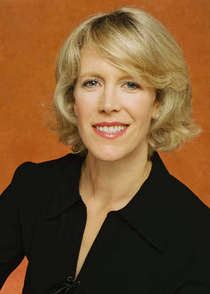 During my weekly trip to the library with my daughters, I came across the most amazing book. It was a life changing text called Mommy Wars. It describes the war between stay at home mothers and working mothers. It helped me come to terms with some of my own issues regarding my choice to work from home.
During my weekly trip to the library with my daughters, I came across the most amazing book. It was a life changing text called Mommy Wars. It describes the war between stay at home mothers and working mothers. It helped me come to terms with some of my own issues regarding my choice to work from home.
As a parent of a toddler and a special needs teenager, I have a number of challenges with finding the right balance. There will always be a level of discomfort regarding each choice, as well as a level of sacrifice. During one particular hot and stressful mommy day, I read through the essays in Mommy Wars and nodded my head in agreement; each narrative resonated with me. I knew that I was not alone. I recently had the honor of interviewing the author of Mommy Wars, Leslie Morgan Steiner. Check out her interview below to hear how she interprets the text almost a decade later, and the new war that is waged in our households.
 Why did you write Mommy Wars?
Why did you write Mommy Wars?
Whether you work or stay at home after having kids has become one of the defining generational issues for American women today. For me, as a working mom with three kids, I was curious about – and sometimes jealous of – moms who decided to stay home. I had a raging debate in my head about what was best for my kids and me – to work or stay home. So for Mommy Wars I asked 26 REAL experts on motherhood – MOMS — to explain what life is REALLY like for working and stay-at-home mothers today, and to explore the “inner mommy war” – the guilt inside our own heads.
These issues are the same in 2015 as when I first became a mother in 1997. We still need more support from other moms, our families, our employers and the government, in terms of equal pay protection and incentives for affordable daycare. What’s changed: women are more comfortable speaking out about how difficult it is to juggle work and family, and men have become much more personally involved in parenthood and the work/family balancing act.
If I wrote this book today, now that my kids are older teenagers instead of elementary school students, I’d even more hilarious stories to include about the crazy sitcom of motherhood in America today.
Is the tension between moms real or imagined? Why so much conflict?
The “mommy wars” are not a typical type of WAR where one side wins and the other loses. Women are not looking to defeat other women. We are looking to feel good about ourselves as mothers – which is a pathetically difficult task in the US today. The tension between working and at-home moms IS real. But the worst mommy war is the one that rages inside each mom’s head as she struggles to feel good about being a mom — no matter what her choices about work. This inner battle plays out on an external stage — through judgments about other moms. Our society is conflicted, between the “selflessness” of motherhood and the very real need women have to provide for themselves and their families.
What is the tension really about?
In writing Mommy Wars and On Balance, I see three primary sources of tension
1) Insecurity.
Nearly every mother has high – usually impossible – standards for the kind of mother she wants to be. In Mommy Wars, Terri Minsky writes about how, during one year as a stay-at-home mom, she SEWED her child’s birthday party invitations. This striving for perfection makes us vulnerable to always feeling we’ve fallen short. Add to that all the media messages that say we are not doing enough and it becomes really hard to feel good about being a mom in America today – no matter what your choice about working or staying home. When you feel insecure, natural response is to put down others, to make yourself feel better.
2) Societal conflict.
Our society worships personal achievement and financial success. Our society also worships an unrealistic, all-sacrificing ideal of motherhood. These two values directly contradict themselves once a woman becomes a mother – as Mommy Wars contributor Monica Buckley Price explains in her essay about how she could no longer work once her child developed autism.
It is very hard to be a mother in America and live up to either of these ideals – and yet we have a lot of moms out there today trying to live up to both at once – to be a loving, hands-on mom, and a success at work. And moms who don’t work feel shunted aside and ignored by people who still work; and in a very real sense, their lack of financial freedom limits choices for themselves and their kids. No wonder we moms feel overwhelmed!
3) Competition.
Women are naturally competitive – and that’s a good thing! We all want to be the finest moms we can be. So some degree of judgment of other moms, competition with other moms, is normal – even healthy. But for many women, their natural competitiveness gets out-of-control – when you see a mom staying up all night to plan a five-year-old’s birthday party, or crying when she forgets to make cookies for the school bake sale – there is something out of whack, not just in her but in our society overall, that we push moms until they feel such a ridiculous kind of failure.
Where are men in the Mommy Wars today?
Fathers caught in a bind – they feel they are doing a lot, because they are more involved in their children’s lives than their dads were. Data shows that on average, dads today spend three times as much time with their children on a daily basis vs. their own fathers. But fathers are still doing far less than mothers are, in terms of household chores and childcare. Women have earned equality at work. But there’s a long way to go before women have true equality at home.
What have you learned from writing Mommy Wars and your blogs?
First: Happiest moms tend to be the ones who have time with their kids AND paid work – they work for companies and have partners that give them the flexibility and support they need to be good employees – and good moms.
Second: We moms need each other –whether we work or not – and we’d be FAR better off if we supported all good mothering choices. We need to stand up for other moms, and stick up for ourselves.
- A few other learnings from the blog and the book:
- Motherhood should unite women, not divide us.
- It is a myth or at least an exaggeration that in the US today women have unlimited choices and complete freedom.
- Don’t blame women – we have too much finger pointing as it is – this is a societal problem – blaming women makes it worse
- We’d all be better off if we did not battle each other – if we joined together to increase options and freedom for mothers, and stopped judging each other by our differences.
- When was the last time you heard a woman say to another one, “You are a great mom”? When was the last time you saw an advertisement or read a magazine article that made you feel “I’m a great mom”?
- Whether you stay at home or stay at your desk, you risk insanity when you become a mom, AND it’s TOTALLY worth it!
Some critics claim that the work/life juggle is a problem we hear about only among whiny, over-privileged women.
Many women who look like they “have it all” have often still struggled tremendously. And even moms who can afford some degree of childcare and help with chores like housecleaning are often unhappy and frustrated. Can you imagine, then , how less privileged women feel? The so-called “privileged” mothers in our country are just the tip of the iceberg. It would be foolish to ignore their complaints about how difficult motherhood can be — because if these moms are struggling, moms with fewer resources are struggling even harder.
For American women in their 20s, 30s, and 40s who’ve been to college – this is the defining issue of our generation. Almost all of us struggle – mightily – with our decisions to work or stay home once we become mothers. Each choice has an enormous price tag attached. I chose this demographic of women for the book because we’ve all thought – long and hard – about the pros and cons of working v. stay-at-home motherhood. The pressures on ALL moms in America today are extreme and it would be foolish to ignore a segment of the female population willing and able to speak up about the problem.
Leslie Morgan Steiner is the editor of the best-selling anthology Mommy Wars (www.lesliemorgansteiner.com). She writes a weekly parenting column for ModernMom.com. From 2006-2008 she wrote“On Balance,”a daily online blog about work and family juggling, which was the most popular “mommy blog” on the web, with over 500 entries and 100,000 poster comment ( www.washingtonpost.com/


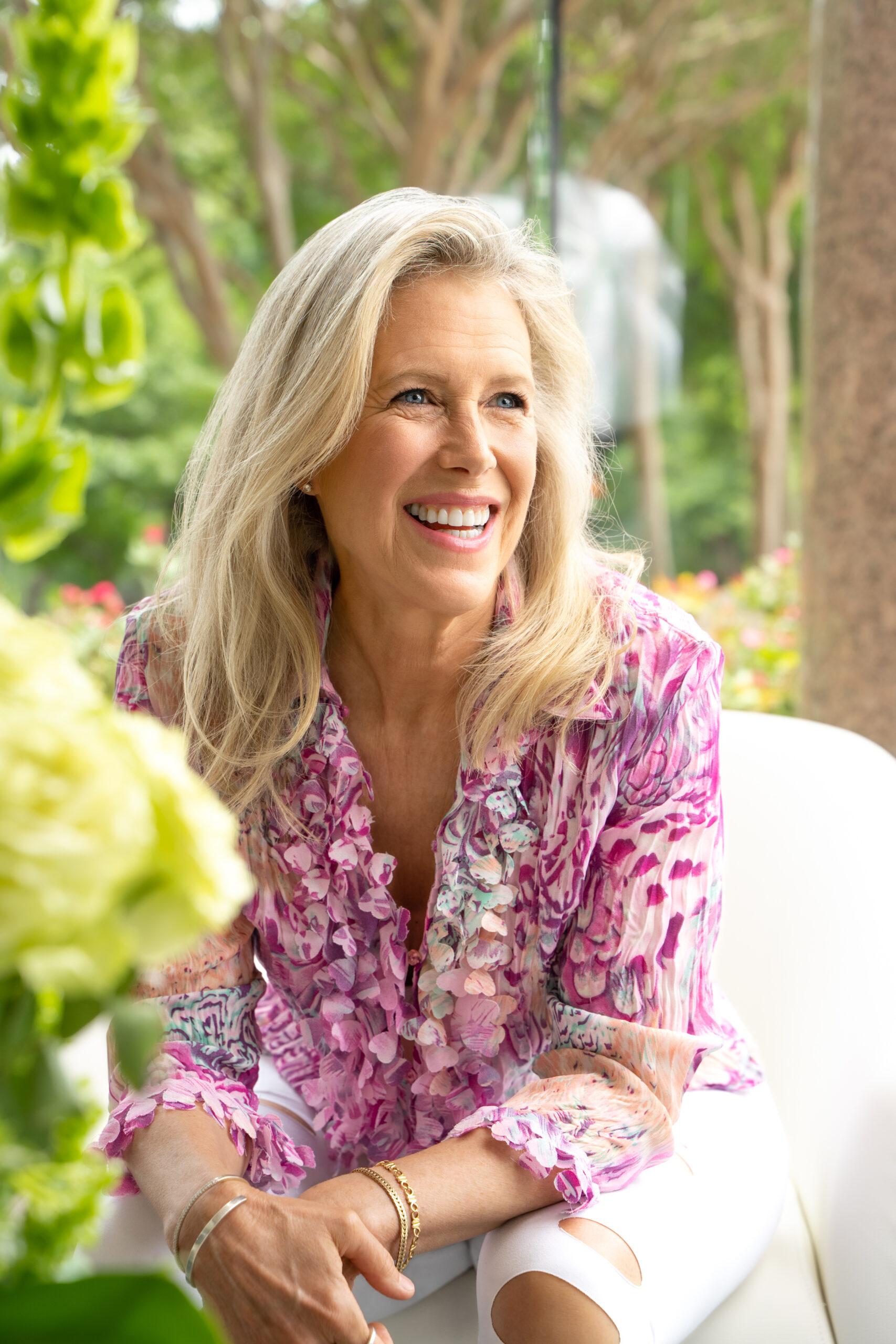
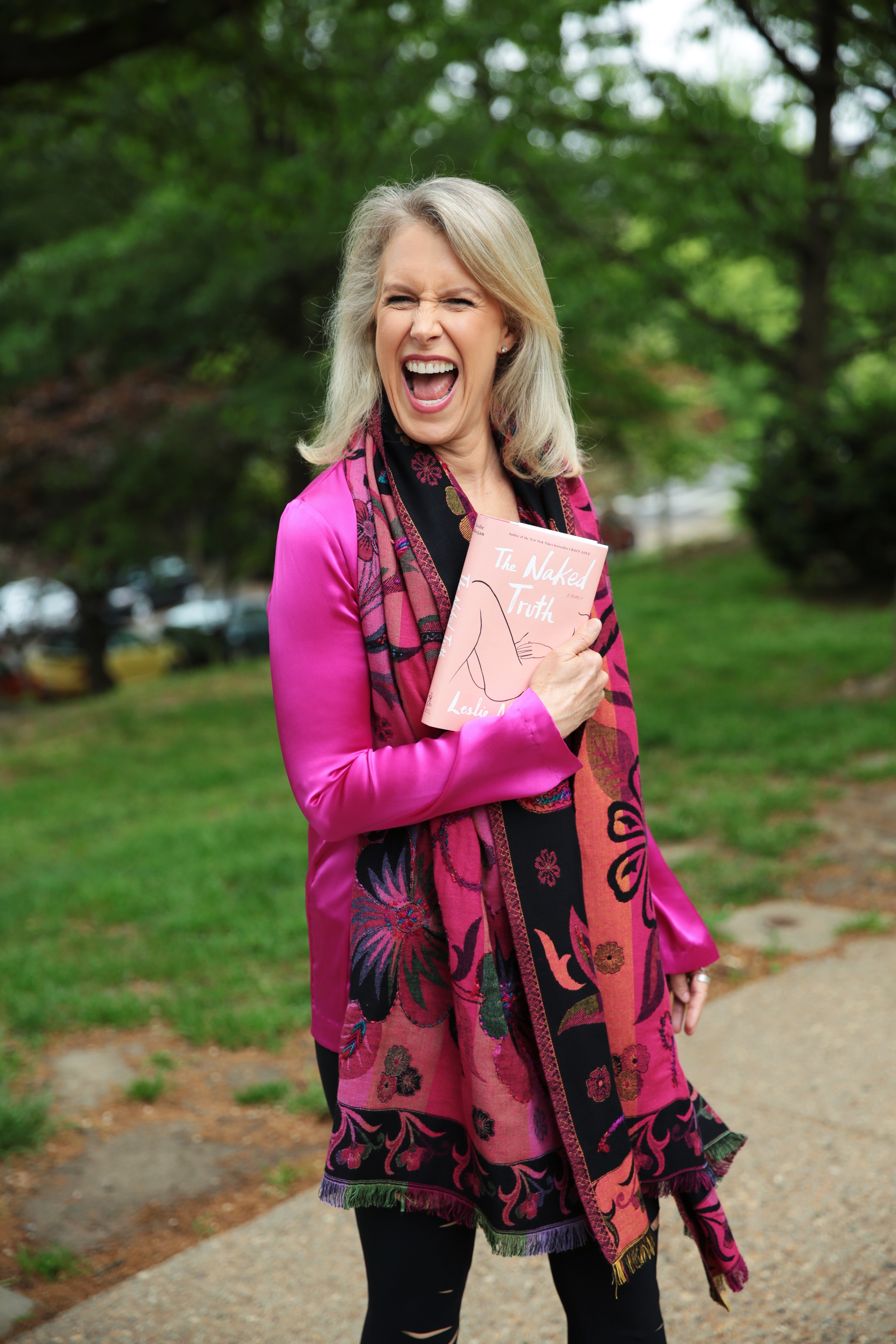
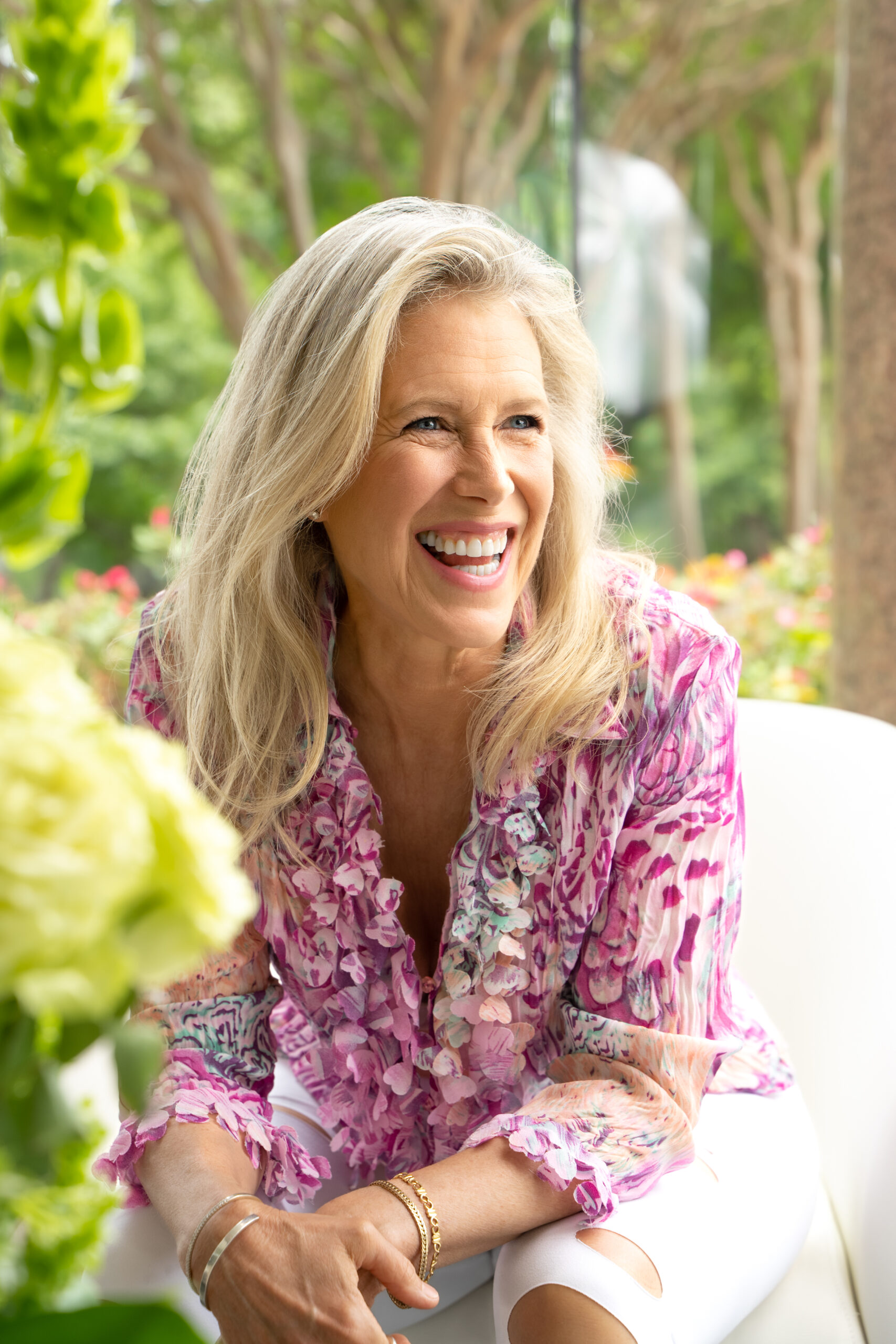
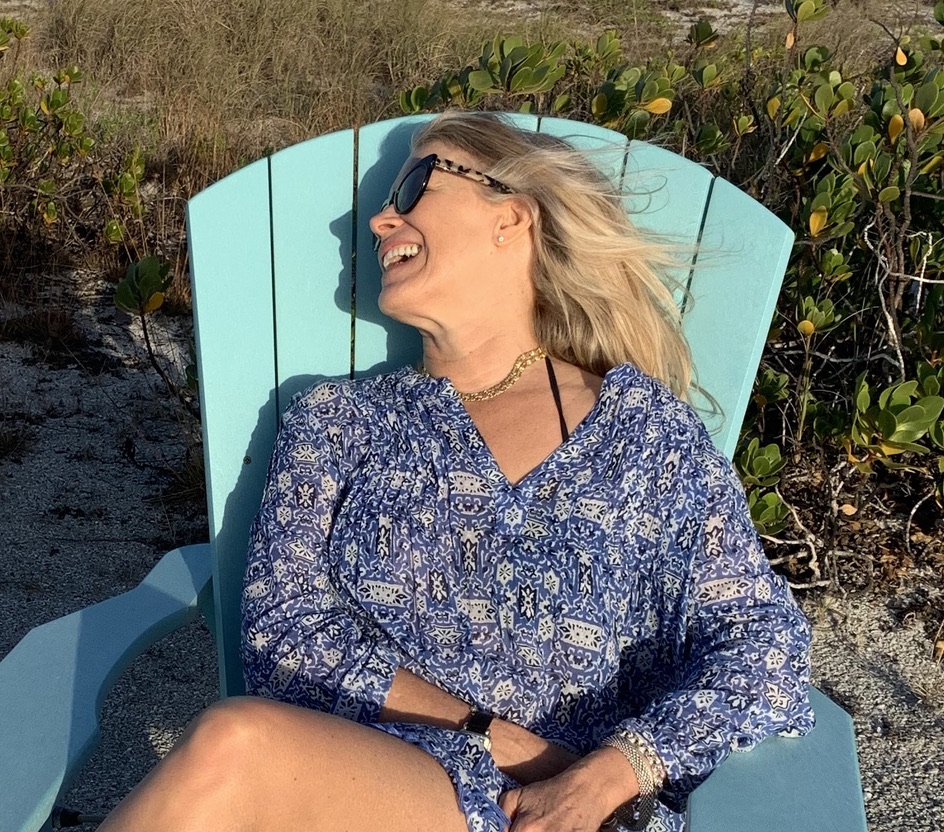



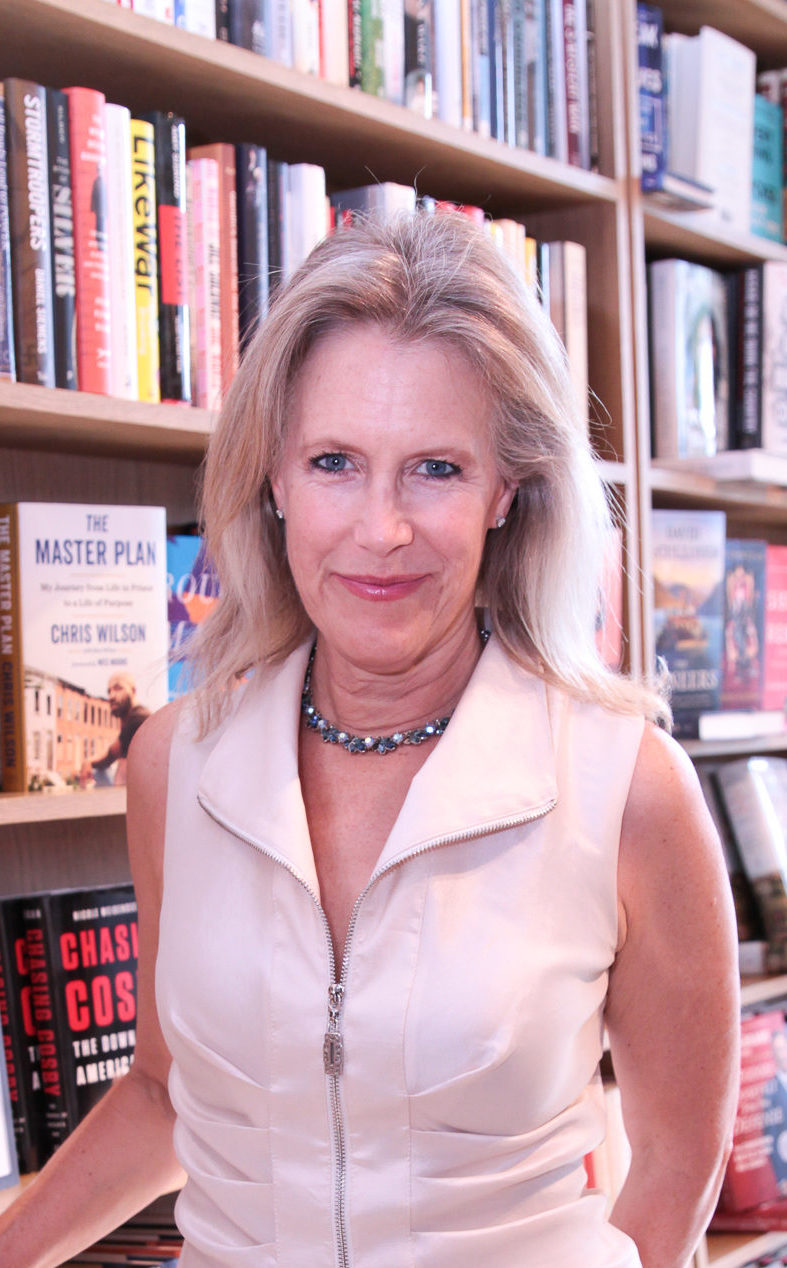 Glamour Magazine – Tips for Loving Your Post 50 Body
Glamour Magazine – Tips for Loving Your Post 50 Body


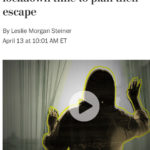



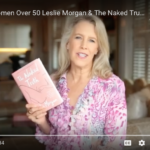




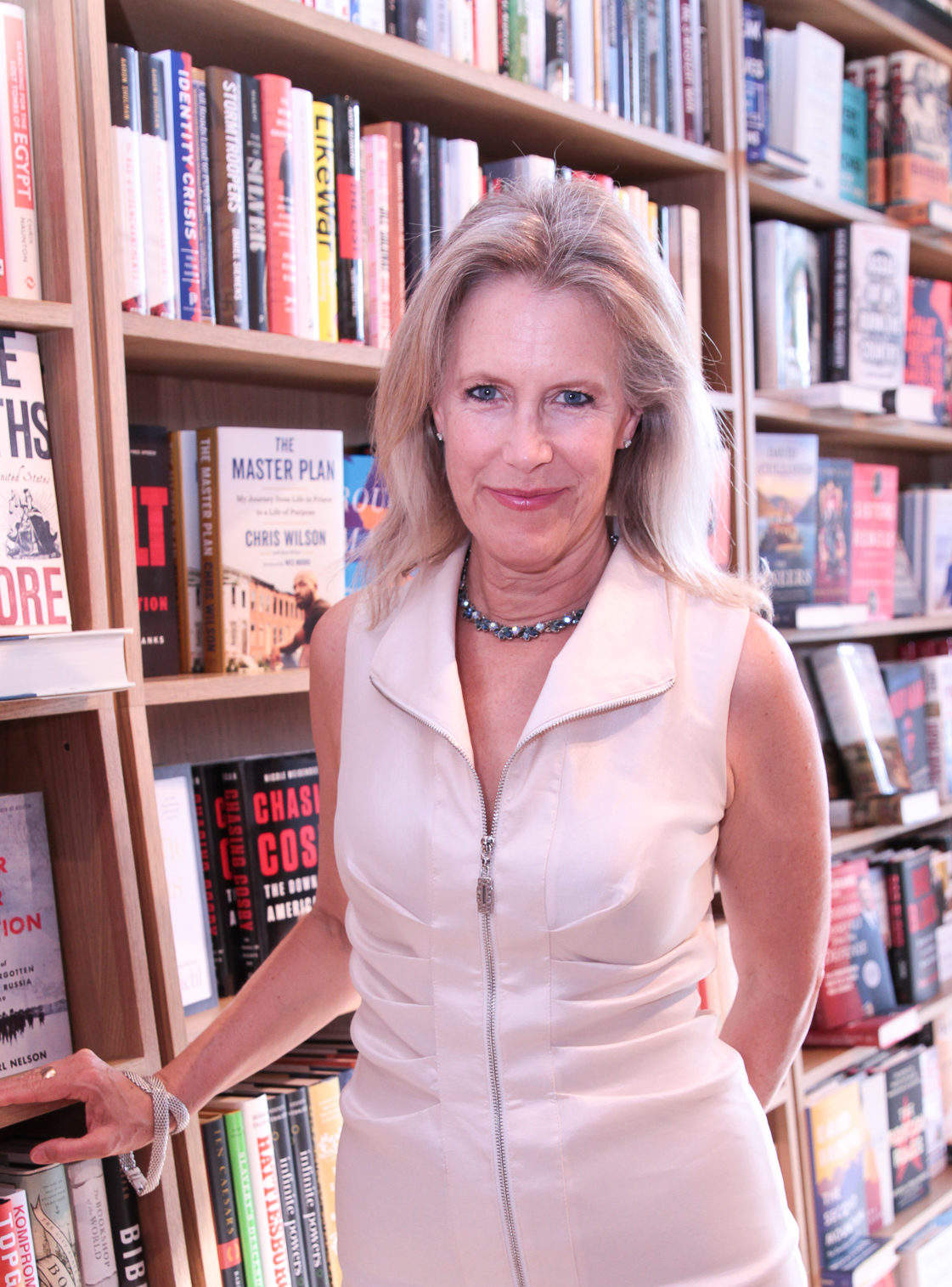
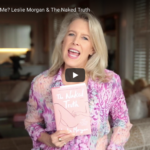
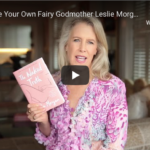

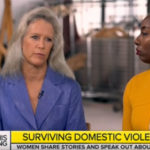
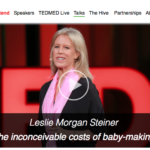

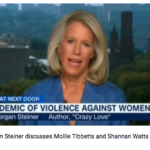
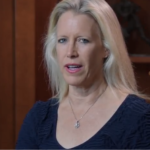




Recent Comments